Visa policy of the Schengen Area
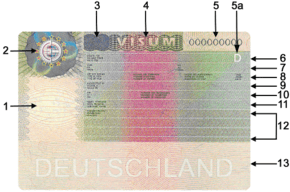
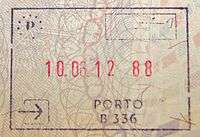
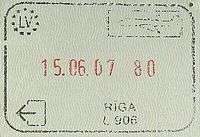
The visa policy of the Schengen Area is set by the European Union and applies to the Schengen Area and to other EU member states without the opt-outs enjoyed by Ireland and the UK.[1] If someone other than a European Union, European Economic Area (EEA) or Swiss citizen wishes to enter the Schengen Area, Bulgaria, Croatia, Cyprus or Romania they must have a visa or be a national of a visa-exempt country.
The Schengen Area consists of 22 European Union member states and four non-members who are members of EFTA: Iceland, Liechtenstein, Norway and Switzerland. Bulgaria, Croatia, Cyprus and Romania are not yet part of the Schengen Area but, nonetheless, have a visa policy that is based on the Schengen acquis.[2]
Ireland and the United Kingdom opt out of the EU's visa policies and instead operate their own separate visa policies, as do certain overseas territories of EEA member states.
European Union citizens and European Free Trade Association (EFTA) nationals are not only visa-exempt but are legally entitled to enter and reside in each other's countries. Their right to freedom of movement in each other's countries can, however, be limited in a reserved number of situations, as prescribed by the European Union Treaties.
Freedom of movement
Directive 2004/38/EC of the European Parliament and of the Council of 29 April 2004 recognises the right of citizens of the Union and their family members to move and reside freely within the territory of the Member States[3][4][5] defines the right of free movement for citizens of the European Economic Area (EEA), which includes the European Union (EU) and three European Free Trade Association (EFTA) members Iceland, Norway and Liechtenstein. Switzerland, which is a member of EFTA but not of the EEA, is not bound by the Directive but rather has a separate bilateral agreement on the free movement with the EU.
Citizens of all EEA member states and Switzerland holding a valid passport or national identity card enjoy freedom of movement rights in each other's territory and can enter and reside in the each other's territory without a visa.
If EU/EEA/Swiss nationals are unable to present a valid passport or national identity card at the border, they must nonetheless be afforded every reasonable opportunity to obtain the necessary documents or have them brought to them within a reasonable period of time or corroborate or prove by other means that he/she is covered by the right of free movement.[6][7]
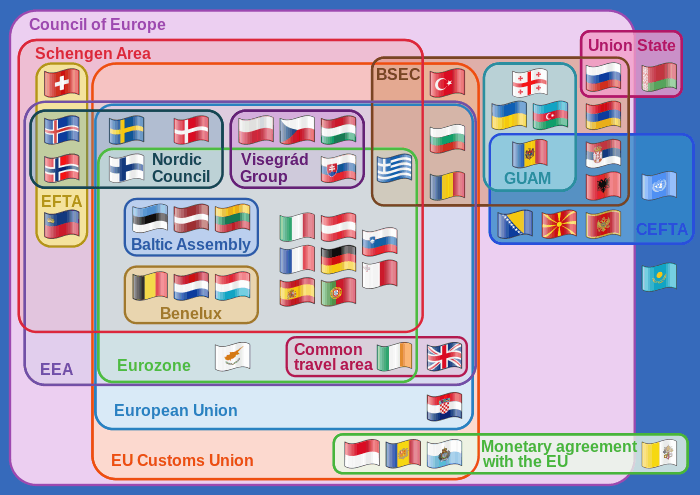
However, EU, EEA member states and Switzerland member states can refuse entry to an EU/EEA/Swiss national on public policy, public security or public health grounds where the person presents a "genuine, present and sufficiently serious threat affecting one of the fundamental interests of society".[8] If the person has obtained permanent residence in the country where they seek entry (a status which is normally attained after 5 years of residence), the member state can only expel them on serious grounds of public policy or public security. Where the person has resided for 10 years or is a minor, the member state can only expel them on imperative grounds of public security (and, in the case of minors, if expulsion is necessary in the best interests of the child, as provided for in the Convention on the Rights of the Child).[9] Expulsion on public health grounds must relate to diseases with 'epidemic potential' which have occurred less than 3 months from the person's date of arrival in the Member State where they seek entry.[10]
Non-EU/EEA/Swiss citizen family members
A family member of an EU/EEA/Swiss citizen who is in possession of a residence permit indicating their status is exempt from the requirement to hold a visa when entering the European Union, European Economic Area or Switzerland when they are accompanying their EU/EEA/Swiss family member or are seeking to join them.[11] As from the 6 April 2015 the UK recognizes this document.[12]
Non-EU family members who otherwise require a Schengen visa will still need one before they travel to Switzerland even if they possess a UK residence permit that clearly mentions that they are the family member of an EEA citizen.
Visa exemptions
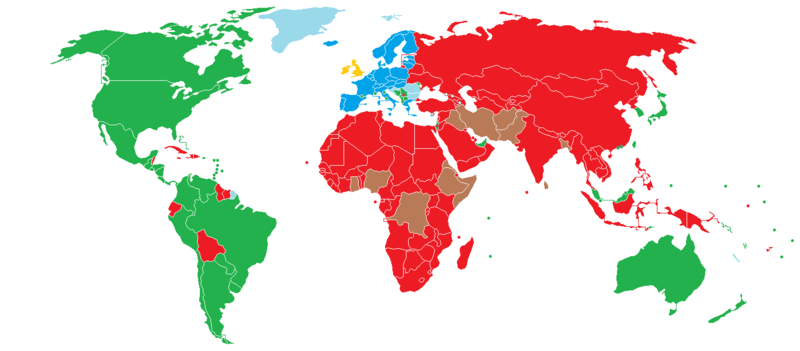
Since 2001, the European Union has issued two lists regarding visas for the Schengen Area: a white list of countries whose nationals do not require visas (Annex II)[13] and a black list of countries whose nationals do require visas (Annex I).[14] The two lists are also adopted by Bulgaria, Croatia, Cyprus and Romania, even though the four countries are not yet part of the Schengen Area.
Individuals in the following categories can enter the Schengen Area, Bulgaria,[15] Croatia,[16] Cyprus,[17] and Romania[18] without a visa:
As of right
-
 European Union citizens
European Union citizens - citizens of non-EU member states of the European Economic Area, namely Iceland, Liechtenstein and Norway, and
- citizens of Switzerland
| Rules for EU/EEA/CH nationals |
|---|
| If EU, EEA and Swiss nationals are unable to present a valid passport or national identity card at the border, they must nonetheless be afforded every reasonable opportunity to obtain the necessary documents or have them brought to them within a reasonable period of time or corroborate or prove by other means that he/she is covered by the right of free movement.[6][7] |
Family members of EU/EEA/Swiss citizens
| Rules for family members of EU/EEA/Swiss citizens |
|---|
An individual can enter the Schengen Area as a whole for up to 90 days without a visa if he/she:[19]
A family member of an EU/EEA/Swiss citizen satisfying the above conditions can also enter Bulgaria,[20] Croatia, Cyprus[21] and Romania[22] and stay for up to 90 days in each country. In theory, a family member of an EU/EEA/Swiss citizen who does not fulfil the above conditions does not have to apply for a visa in advance, and can instead obtain a visa on arrival at the border checkpoint of a Schengen country, Bulgaria, Croatia, Cyprus or Romania by presenting evidence of the familial relationship.[19] |
Citizens of 'Annex II' countries and territories
Citizens of the following 60 countries and territories holding ordinary passports:[23]
| Rules for the Annex II nationals |
|---|
| The above Annex II nationals can enter the Schengen Area as a whole for pleasure or for business without the need to apply for a visa for a maximum of 90 days in any 180 day period (which entails considering the 180 day period preceding each day of stay).[27] This does not apply to the citizens of those countries that have concluded visa waiver agreements with the EU – Antigua and Barbuda, The Bahamas, Barbados, Brazil, Saint Kitts and Nevis, Mauritius, and Seychelles, with respect to which the old definition of 3 months during a 6 months period following the date of first entry continues to apply.[28] Any time spent by an Annex II national in the Schengen Area on a long-stay visa or a residence permit does not count towards the visa exemption period limit of 90 days.[27] New Zealand citizens, however, can spend up to 90 days in each of Austria, Belgium, Czech Republic, Denmark, Finland, France, Germany, Greece, Iceland, Italy, Luxembourg, The Netherlands, Norway, Portugal, Spain, Sweden and Switzerland (as well as Hungary if visiting it as the final Schengen destination) without reference to time spent in other Schengen signatory states,[29][30][31][32][33] but if travelling to other Schengen countries the 90 days in any 180 day period time limit applies. In addition, above the framework of the Schengen visa exemption of 90 days in any 180 day period, Argentine, Chilean, Costa Rican, Israeli, Malaysian, Mexican, South Korean and Uruguayan citizens are permitted to spend an extra 3 months per 6-month period visa-free in the Czech Republic,[34] regardless of time spent in other Schengen countries.[35] Similarly, above the framework of the Schengen visa exemption of 90 days in any 180 day period, Australian, Brazilian, Canadian, Chilean, Israeli, Japanese, Malaysian, Singaporean, South Korean and United States citizens are permitted to spend an extra period of 90 days visa-free in Denmark.[36][37] Again, above the framework of the Schengen visa exemption of 90 days in any 180 day period, Israeli, South Korean and United States citizens are permitted to spend an extra period of 90 days visa-free in Poland.[38]
The above Annex II nationals can also enter Bulgaria, Croatia, Cyprus and Romania without a visa for a maximum of 90 days in a 180-day period in each of these countries. The visa-free time restrictions for each of these countries is calculated separately (as well as being separate to the Schengen Area visa-free time restriction). Although all Annex II nationals can enter Schengen countries, Bulgaria, Croatia, Cyprus and Romania visa-free for pleasure or for business, individual countries can decide to impose a visa requirement on those who wish to enter to work (i.e. to carry out a 'paid activity'). The table at the end of the article indicates which individual countries permit Annex II nationals to work during their visa-free stay. To be able to enter the Schengen Area/Bulgaria/Croatia/Cyprus/Romania without a visa, the above Annex II nationals are required to have a travel document which is valid for at least 3 months after the intended date of departure and which has been issued in the previous 10 years,[27] have sufficient funds for their stay and onward/return journey, justify the purpose and conditions of their stay, not be listed in the Schengen Information System as someone to be refused entry and not be considered as a threat to public policy, internal security, public health or the international relations of any Schengen country.[39] Visa-free access for Annex II nationals of Albania, Bosnia and Herzegovina, Macedonia, Moldova, Montenegro and Serbia applies only to holders of biometric passports. Visa waiver for New Zealand citizens also applies to Cook Islanders, Niueans and Tokelauans as they also use New Zealand passports. Visa waiver for Taiwan applies only to holders of Taiwanese passports with their personal ID numbers stipulated in their respective passports. Taiwan issues passports without ID numbers to some persons not having the right to reside in Taiwan, including nationals without household registration and certain persons from Hong Kong, Macau, and mainland China.[40][41] The visa waivers granted by the European Union, the United Kingdom and Ireland to Taiwan passport holders have not altered the European Union member states' non-recognition of Taiwan as a sovereign country. For this reason, Taiwan is listed in Annex II by the European Commission under the heading "entities and territorial authorities that are not recognised as states by at least one member state", by Bulgaria as "China, Taipei"[42] and by Romania under the heading "Special Administrative Regions of the People's Republic of China".[43][44] |
| Dates of placement in the Annex II and dates of bilateral agreements |
|---|
Ecuador was removed from the list in March 2003, Bolivia was removed in December 2006 |
School pupils resident in the EU, EEA and Switzerland
| Rules for the school pupils resident in the EU, EEA and Switzerland |
|---|
A school pupil who is not an EU/EEA/Swiss citizen, but who legally resides in the EU, EEA or Switzerland, can enter the Schengen Area, Bulgaria, Croatia, Cyprus and/or Romania without a visa for a short stay or transit if:[45]
Even though a school pupil fulfilling all of the above conditions is exempt from having to obtain a visa to enter the Schengen Area, Bulgaria, Cyprus and/or Romania, he or she is nonetheless required to have a valid travel document. However, he or she is exempt from having to carry a valid travel document if:
|
School pupils resident in Annex II countries and territories
| Rules for school pupils resident in Annex II countries and territories |
|---|
| School pupils travelling in the context of a school excursion as members of a group of school pupils accompanied by a teacher from the school in question who reside in an Annex II country/territory, but hold the nationality of an Annex I country/territory, are granted visa-free entry to Cyprus (a national collective visa is required), Germany, Malta, Poland, Slovakia and Sweden (under 18), but not other Schengen countries.[46][47]
Note that school pupils (of any nationality and resident in any country) who require a visa for the Schengen Area, Bulgaria, Cyprus and/or Romania and who are visiting for the purpose of study and/or educational training are waived the visa application fee (but are still required to submit the relevant supporting documents).[48] |
Holders of local border traffic permits
Currently the local border traffic regulation agreements exist with Belarus (with Latvia since 2011), Moldova (with Romania since 2010), Russia (with Norway since 2012, with Latvia since 2013 and Poland 2012-20161) and Ukraine (with Hungary and Slovakia since 2008, Poland since 2009 and Romania since 2015). Agreement between Croatia and Bosnia and Herzegovina is pending ratification but is applied on provisional basis.[49]
- Notes
- ^ Poland has suspended the border traffic agreements with Russia indefinitely from 4 July 2016.[50][51]
| Rules for the holders of local border traffic permits |
|---|
| Schengen countries are authorised by virtue of the EU regulation no 1931/2006 to conclude bilateral agreements with neighbouring third countries to introduce a local border traffic permit scheme.[52] Such permits are a type of multiple-entry visa in the form of a passport sticker or a card containing the holder's name and photo, as well as a statement that its holder is not authorised to move outside the border area and that any abuse shall be subject to penalties. The border area may include any administrative district within 30 kilometres from the external border (and, if any district extends beyond that limit, the whole district up to 50 kilometres from the border). The applicant for the permit has to show legitimate reasons to frequently cross an external land border under the local border traffic regime. The validity of the permit can be up to five years.
Holders of local border traffic permits are able to spend up to 3 months every time they enter the border area of the Schengen country which has issued the permit (this time limit is far more generous than the '90 days in a 180-day period' normally granted to third-country nationals visiting the Schengen Area).[53] A local border traffic permit scheme has been implemented in Hungary, Poland, Romania and Slovakia for Ukrainian citizens, is being implemented or negotiated in Poland and Lithuania regarding Belarus and Russia (Kaliningrad area), and has also been implemented in a 30 km border zone between Norway and Russia in 2012. See Schengen Area#Local border traffic at external borders. There is also a tendency to allow more and more one-year multiple-entry visas to Russians - especially by Finland. There are plans in the EU to allow up to 5 years validity on multiple-entry visas for Russians,[54] partly to relieve the work load at embassies. |
Holders of non-ordinary passports
Recent EU visa waiver bilateral agreements are exempting holders of non-ordinary passports from a visa requirement. These waivers are applicable to the counter-party, the Schengen countries, Schengen associated countries (Iceland, Liechtenstein, Norway and Switzerland) and countries that are obliged to implement the Schengen acquis (Bulgaria, Croatia, Cyprus and Romania):
- Brazil - exemption for diplomatic, official and service passports
- China - exemption for diplomatic passports
- Russia - exemption for diplomatic passports
- Timor-Leste - exemption for ordinary, diplomatic, service, official or special passports
- United Arab Emirates - exemption for ordinary, diplomatic, service/official or special passports
There are no common black[Note 1] or transit[Note 2] lists for holders of diplomatic, service and other official passports. States may still maintain a different policy on these.[57][58][59]
Visa waivers maintained exclusively for diplomatic, official and service passports by member state:
- Austria: Azerbaijan, Bolivia, Cape Verde, Côte d'Ivoire, Ecuador, Egypt, Indonesia, Jamaica, Maldives, Morocco, Pakistan, Philippines, South Africa, Thailand, Tunisia, Turkey, Ukraine (biometric only) and only diplomatic passports of Armenia, Belize, Georgia and Sovereign Military Order of Malta.[60]
- Belgium: Bolivia, Cape Verde, Egypt, Indonesia, Jamaica, Malawi, Maldives, Morocco, South Africa, Thailand, Tunisia, Turkey and only diplomatic passports of Armenia, Azerbaijan, Chad, Georgia, Pakistan, Senegal and Ukraine.[61]
- Czech Republic: Bolivia, Cape Verde, Egypt, Laos, Morocco, Pakistan, South Africa, Thailand, Tunisia, Turkey, Ukraine and only diplomatic passports of Armenia, Azerbaijan, Georgia, Kazakhstan, Mongolia, Sovereign Military Order of Malta, Vietnam and Yemen.[62]
- Denmark: Bolivia, Egypt, India, Morocco, Pakistan, Philippines, Thailand, Turkey and only diplomatic passports of Kazakhstan, Tunisia and Ukraine.[63]
- Estonia: Bolivia, Cape Verde, Morocco, Philippines, Turkey, Ukraine and only diplomatic passports of Armenia, Azerbaijan, Georgia, Jordan, Kazakhstan, Mongolia, Thailand, Tunisia and Vietnam.[64]
- Finland: Bolivia, Cape Verde, Pakistan, Philippines, Thailand, Turkey and only diplomatic passports of Armenia, Azerbaijan, Georgia, Kazakhstan, Morocco, Tunisia and Ukraine.[65]
- France: Algeria, Angola, Bahrain, Bolivia, Cape Verde, Dominican Republic, Gabon, Indonesia, Kuwait, Morocco, Oman, Qatar, Saudi Arabia, South Africa, Tunisia, Turkey, United States (provided not travelling on duty) and only diplomatic passports of Armenia, Azerbaijan, Benin (biometric only), Republic of the Congo (biometric only), Georgia, India, Jordan, Kazakhstan, Namibia, Senegal, Thailand, Ukraine and Vietnam.[66]
- Germany: Bolivia, Cape Verde, Chad, Ecuador, Ghana, Philippines, Qatar (biometric only), Thailand, Turkey and only diplomatic passports of Algeria, Armenia, Azerbaijan, Georgia, India, Jamaica, Kazakhstan, Kenya, Malawi, Mongolia (biometric only), Morocco, Namibia, Pakistan, South Africa, Tunisia, Ukraine and Vietnam.[67]
- Greece: Algeria, Bolivia, Cape Verde, Egypt, Kuwait, Morocco, Philippines, South Africa, Tunisia, Turkey, Zimbabwe and only diplomatic passports of Armenia, Azerbaijan, Georgia, India, Iran, Jordan, Kazakhstan, Pakistan and Ukraine.[68][69]
- Hungary: Armenia, Azerbaijan, Belarus, Cambodia, Cape Verde, Cuba, Ecuador, Georgia, Indonesia, Kazakhstan, Kuwait, Kyrgyzstan, Laos, Mongolia, Morocco, Philippines, Russia, South Africa, Sovereign Military Order of Malta, Tajikistan, Thailand, Tunisia, Turkey, Turkmenistan, Ukraine and Vietnam and only diplomatic passports of Algeria, Egypt, Iran, Lebanon, Swaziland, Uzbekistan and Yemen.[70]
- Italy: Algeria, Angola, Azerbaijan, Benin, Bolivia, Botswana, Burkina Faso, Cameroon, Cape Verde, Dominican Republic, Ecuador, Egypt, Gambia, Guyana, Kuwait, Lesotho, Libya, Mauritania, Morocco, Niger, Oman, Philippines, Qatar, South Africa, Sovereign Military Order of Malta, Swaziland, Thailand, Togo, Tunisia, Turkey, Uganda and only diplomatic passports of Armenia, Georgia, Jordan, Kazakhstan, Mongolia, Mozambique, Senegal, Ukraine and Vietnam.[71]
- Latvia: Armenia, Cape Verde, Georgia, Mongolia, Turkey, Ukraine and only diplomatic passports of Azerbaijan, Georgia and Uzbekistan.[72]
- Lithuania: Cape Verde, Oman, Philippines, Turkey, Ukraine and only diplomatic passports of Armenia, Azerbaijan, Georgia, Jordan, India, Kazakhstan and Morocco.[73]
- Luxembourg: Bolivia, Cape Verde, Ecuador, Indonesia, Jamaica, Malawi, Morocco, South Africa, Thailand, Tunisia, Turkey and only diplomatic passports of Armenia, Azerbaijan, Chad, Georgia, Pakistan, Senegal and Ukraine.[74]
- Malta: Algeria, Cape Verde, Egypt, Kuwait, Libya (accredited in Malta), South Africa, Tunisia and Turkey and only diplomatic passports of Angola, Armenia, Azerbaijan, Bahrain, Belarus, Belize, Cambodia, Cuba, Ecuador, Gambia, Georgia, Ghana, Guinea, Guyana, India, Indonesia, Iran, Jamaica, Jordan, Kazakhstan, Kenya, Kyrgyzstan, Lebanon, Lesotho, Maldives, Mali, Marshall Islands, Mauritania, Mongolia, Morocco, Namibia, Nepal, Nigeria, Oman, Pakistan, Palestine, Philippines, Qatar, Saudi Arabia, Senegal, Sierra Leone, Sovereign Military Order of Malta, Sri Lanka, Sudan, Swaziland, Syria, Thailand, Turkmenistan, Uganda, Ukraine, Uzbekistan, Vietnam, Yemen and Zambia.[75]
- Netherlands: Bolivia, Cape Verde, Ecuador, Indonesia, Jamaica, Malawi, Morocco, South Africa, Thailand, Tunisia, Turkey and only diplomatic passports of Armenia, Azerbaijan, Chad, Georgia, Pakistan, Senegal, Ukraine.[76]
- Poland: Benin, Cape Verde, Ecuador, Indonesia, Laos, Mongolia, Morocco, Philippines, South Africa, Thailand, Tunisia, Turkey, Ukraine and only diplomatic passports of Armenia, Azerbaijan, Belarus, Georgia, Iran, Kazakhstan, Kyrgyzstan, Sovereign Military Order of Malta, Uzbekistan and Vietnam.[77]
- Portugal: Algeria, Angola, Azerbaijan, Bolivia, Cape Verde, Ecuador, Egypt, Indonesia, Kuwait, Morocco, Mozambique, Oman, Qatar, São Tomé and Príncipe, South Africa, Tunisia, Turkey and only diplomatic passports of Armenia, Democratic Republic of the Congo, Georgia, Kazakhstan, Senegal and Ukraine.[78]
- Slovakia: Algeria, Armenia, Azerbaijan, Belarus, Bolivia, Cambodia, Cape Verde, Egypt, Georgia, Indonesia, Jordan, Kazakhstan, Laos, Mongolia, Morocco, North Korea, Pakistan, Philippines, Russia, South Africa, Sovereign Military Order of Malta, Thailand, Tunisia, Turkey, Turkmenistan, Ukraine, Uzbekistan, Yemen and only diplomatic passports of Cuba, Kyrgyzstan and Vietnam.[79]
- Slovenia: Bolivia, Cape Verde, Cuba, Egypt, Indonesia, Morocco, Philippines, South Africa, Thailand, Tunisia, Turkey, Vietnam and only diplomatic passports of Armenia, Azerbaijan, Ecuador, Georgia, India, Jamaica, Kazakhstan, Maldives, Sovereign Military Order of Malta and Ukraine.[80]
- Spain: Algeria, Bolivia, Cape Verde, Ecuador, Egypt, Morocco, Philippines, Tunisia, Turkey and only diplomatic passports of Angola, Armenia, Azerbaijan, Georgia, Jordan, Kazakhstan, Kuwait, Mauritania, Senegal, South Africa, Thailand, Ukraine and Vietnam.[81]
- Sweden: Bolivia, Cape Verde, Philippines, Thailand, Turkey and only diplomatic passports of Armenia, Azerbaijan, Georgia, India, Morocco, Tunisia and Ukraine.[82]
Outside Schengen Area:
- Bulgaria: Azerbaijan, Cape Verde, India, Indonesia, Iran, Kazakhstan, Kuwait, Mongolia, Morocco North Korea, Qatar, Russia, South Africa, Tunisia, Turkey, Turkmenistan, Vietnam and only diplomatic passports of Armenia and Georgia.[83]
- Croatia: Algeria, Armenia, Azerbaijan, Bolivia, Cape Verde, Cuba, Egypt, Georgia, India, Indonesia, Iran, Jordan, Kazakhstan, Kosovo, Morocco, Oman, Philippines, Russia, Qatar, South Africa, Thailand, Tunisia, Turkey, Ukraine, Vietnam.[84]
- Cyprus: Armenia, Cape Verde, Cuba, Egypt, Georgia, India, Iran, Jordan, Kazakhstan, Kuwait, Lebanon, Mongolia, Russia, Syria, Ukraine and only diplomatic passports of Azerbaijan and Qatar.[85]
- Romania: Armenia, Azerbaijan, Belarus, Bolivia, Cape Verde, Central African Republic, Republic of the Congo, Ecuador, Georgia, Ghana, Guinea, Iran, Kazakhstan, Kuwait, Kyrgyzstan, Mauritania, Mongolia, Morocco, Pakistan, Philippines, Russia, São Tomé and Príncipe, Senegal, Sierra Leone, South Africa, Tajikistan, Tanzania, Thailand, Tunisia, Turkey, Turkmenistan, Ukraine, Vietnam, Zambia and only diplomatic passports of Algeria, India, Jordan, Palestine and Uzbekistan.[86]
Other Schengen Area:
- Iceland: Pakistan, South Africa and Turkey.[87][88]
- Liechtenstein: Angola, Algeria, Benin, Bhutan, Bolivia, Cameroon, Cuba, Dominican Republic, Ecuador, Guyana, Indonesia, Jamaica, Laos, Morocco, Namibia, Oman, Philippines, Qatar, South Africa, Thailand, Tunisia, Turkey, Ukraine and only diplomatic passports of Armenia, Georgia, Kazakhstan and Iran.[89]
- Norway: Bolivia, Morocco, Pakistan, Philippines, South Africa, Thailand, Turkey and only diplomatic passports of Armenia, Azerbaijan, Georgia, India, Ukraine and Tunisia.[90]
- Switzerland: Angola, Algeria, Benin, Bhutan, Bolivia, Cameroon, Cuba, Dominican Republic, Ecuador, Guyana, Indonesia, Jamaica, Kuwait, Laos, Morocco, Namibia, Oman, Philippines, Qatar, South Africa, Thailand, Tunisia, Turkey, Ukraine and only diplomatic passports of Armenia, Georgia, Kazakhstan and Iran.[91]
Despite the fact that visas are not required for ordinary passport holders, a visa is required for Australian diplomatic and service/official passport holders by Bulgaria and Cyprus, for Israeli diplomatic and service/official passport holders by Cyprus, for Mexican diplomatic and service/official passport holders by Cyprus and Iceland and for the United States diplomatic and service/official passport holders by Bulgaria, Cyprus, France, Greece and Spain.
Obtaining a visa
If a traveller cannot benefit from one of the visa exemptions listed above, they must take the following steps to obtain a Schengen visa:
- They must first identify which Schengen country is the main destination. This determines the State responsible for deciding on the Schengen visa application and therefore the embassy, high commission or the consulate where the traveller will have to lodge the application.[92] If the main destination cannot be determined, the traveller should file the visa application at the embassy, high commission or consulate of the Schengen country of first entry.[92][93] If the Schengen State of the main destination or first entry does not have a diplomatic mission or consular post in his country (or consular district), the traveller must contact the embassy or the consulate of another Schengen country, normally located in the traveller's country (or consular district), which represents, for the purpose of issuing Schengen visas, the country of the main destination or first entry.
- Some Schengen member state embassies, high commissions and consulates require visa applicants to obtain an appointment in advance.[94]
- In certain countries, the embassy, high commission or the consulate where the traveller has to lodge his or her visa application may have appointed an external service provider (e.g. VFS Global) to collect and return visa applications. Often, the external service provider will collect an additional service charge on top of the Schengen visa application fee. However, if an embassy, high commission or consulate of a Schengen member state decides to appoint an external service provider, it is obliged to retain the option for visa applicants to continue to lodge applications directly at the embassy/high commission/consulate rather than through the external service provider.[95] According to instructions from the European Commission, visa applicants must have a 'genuine choice' between using an external service provider and applying directly at the relevant Schengen member state embassy/high commission/consulate.[96] Specifically, this means that the waiting time to obtain an appointment directly at the embassy/high commission/consulate must not be so long in comparison with the waiting time to obtain an appointment through the external service provider so as to render direct access to the embassy/high commission/consulate 'impossible in practice'.[96] In addition, visa applicants must be clearly told by both the embassy/high commission/consulate and the external service provider that they have the choice either to apply directly at the embassy/high commission/consulate or to use the external service provider, as well as the fact (if applicable) that the external service provider charges an additional service fee.[96]
- The traveller must then present the Schengen visa application to the responsible embassy, high commission or consulate (or its appointed external service provider). The application cannot be submitted more than three months before the date he or she intends to enter the Schengen Area.[94] An application form is to be submitted (all Schengen countries issue Schengen visa application forms in a harmonised, uniform format in a variety of languages), together with a valid passport/travel document and, if necessary, the documents supporting the purpose and conditions of the stay in the Schengen Area (aim of the visit, duration of the stay, lodging). The traveller will also have to prove his or her means of subsistence, i.e., the funds available to cover, on the one hand, the expenses of the stay, taking into account its duration and the destination, and, on the other hand, the cost of the return to the home country. Certain embassies or consulates sometimes call the applicant to appear in person in order to explain verbally the reasons for the visa application.
- Some embassies, high commissions and consulates may require applicants to provide biometric identifiers (typically fingerprints and a digital photograph) as part of the visa application process to be stored on the Visa Information System (VIS). Biometric identifiers are not collected from children under the age of 12.[97]
- Finally, the traveller must have travel insurance that covers, for a minimum of €30,000, any expenses incurred as a result of emergency medical treatment or repatriation for health reasons. The proof of the travel insurance must, in principle, be provided at the end of the procedure, i.e. when the decision to grant the Schengen visa has already been made.
- If the visa application is 'admissible' (i.e. it has been submitted to the embassy/high commission/consulate of the correct Schengen member state), a decision must be given within 15 calendar days of the date on which the application was lodged. Where further scrutiny of the application is required or where the embassy/high commission/consulate receiving the application is representing another Member State, the decision must be given within 30 calendar days of the date on which the application was lodged. Exceptionally, where additional documentation is required, the decision must be given within 60 calendar days of the date on which the application was lodged.[98]
The regular application fee for a short-stay Schengen visa is set at €60. A reduced fee of €35 is paid by children of age 6 to 11, and by nationals of Visa Facilitation Agreement countries (Bosnia-Herzegovina, Georgia, Kosovo, the Republic of Macedonia, Montenegro, Russia, Serbia, and Ukraine). Children under the age of 6, students and teachers undertaking a stay for the purpose of study or educational training, certain scientific researchers and representatives aged 25 or under of non-profit organisations attending events organised by non-profit organisations have their visa fee completely waived.[99] If the visa fee is being charged in the local currency (rather than in Euros), the Schengen member state embassy/high commission/consulate should review the exchange rate used at least every two weeks.[100]
Consular staff, external service providers' staff and border guards are not permitted to discriminate against visa applicants on the basis of their race, sex, ethnic origin, religion or belief, disability, age or sexual orientation.[101][102]
A Schengen visa is only valid for the Schengen Area. For individuals who require a visa for Bulgaria, Croatia, Cyprus and/or Romania, a separate Bulgarian/Croatian/Cypriot/Romanian visa has to be obtained. Note that holders of a Schengen visa can enter Bulgaria, Croatia and Romania for up to 90 days in a 180-day period during the validity of their Schengen visa without having to apply for Bulgarian, Croatian and/or Romanian visas.[20][22][103] However, holders of Bulgarian, Croatian, Cypriot or Romanian visas need to apply for a Schengen visa to enter the Schengen Area. Bulgaria additionally recognizes short stay and transit visas issued by Croatia, Cyprus and Romania.[104]
A different procedure applies to long-stay visas issued by Schengen countries, Bulgaria, Cyprus and Romania for stays of more than 3 months (see below).
At the border
It is possible, exceptionally, to obtain a single-entry Schengen visa valid for up to 15 days on arrival at the border if the individual can prove that they were unable to apply for a visa in advance due to time constraints arising out of 'unforeseeable' and 'imperative' reasons as long as they fulfil the regular criteria for the issuing of a Schengen visa.[105] However, if the individual requesting a Schengen visa at the border falls within a category of people for which it is necessary to consult one or more of the central authorities of other Schengen States, they may only be issued a visa at the border in exceptional cases on humanitarian grounds, on grounds of national interest or on account of international obligations (such as the death or sudden serious illness of a close relative or of another close person).[106] In 2014, over 122,000 Schengen visas were issued to travellers on arrival at the border.[107]
Unrecognised travel documents
As the following travel documents are not recognised by any Schengen country, Bulgaria, Croatia, Cyprus and Romania, visas are not endorsed inside the travel documents.[57]
In addition, the following entities are not recognised as sovereign states by any Schengen country, Bulgaria, Croatia, Cyprus or Romania. Therefore, passports issued by them are not recognised as valid travel documents by any Schengen country, Bulgaria, Croatia, Cyprus or Romania, and visas will not be attached to such passports.
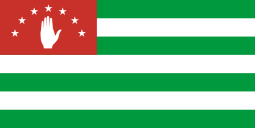 Abkhazian passport
Abkhazian passport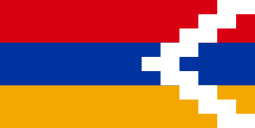 Nagorno-Karabakh passport
Nagorno-Karabakh passport Somaliland passport
Somaliland passport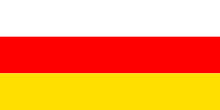 South Ossetian passport
South Ossetian passport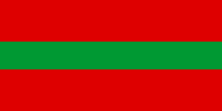 Transnistrian passport
Transnistrian passport
Statistics
14,308,392 Schengen visas were issued and 15,446,676 visa applications were filed in 2015.[107][108]
Most visas were applied for from the following countries
| Application from | Number of applications | Refusal rate | Share of multiple entry visas |
|---|---|---|---|
| | 3,415,432 | 1.3% | 68.1% |
| | 2,308,591 | 2.8% | 18.3% |
| | 1,188,357 | 3.4% | 56.8% |
| | 862,184 | 3.9% | 59.0% |
| | 753,937 | 0.3% | 66.3% |
| | 659,038 | 6.5% | 44.5% |
| | 529,658 | 26.9% | 39.7% |
| | 426,530 | 12.1% | 44.7% |
| | 351,395 | 2.4% | 80.7% |
| | 246,025 | 3.4% | 24.6% |
| United Kingdom residents[109] | 239,201 | 2.6% | 41.7% |
| | 192,812 | 12.0% | 46.2% |
| | 184,996 | 3.5% | 80.4% |
| | 183,972 | 1.5% | 68.4% |
| | 158,889 | 13.9% | 23.0% |
| | 155,454 | 14.1% | 40.4% |
| | 153,336 | 11.4% | 33.7% |
| | 142,447 | 1.0% | 50.1% |
| | 140,964 | 1.9% | 18.9% |
| | 127,264 | 3.3% | 71.0% |
| | 124,071 | 5.8% | 51.9% |
| | 116,986 | 10.5% | 48.6% |
Broken down by issuing state in 2015
| Issuing state | Number of visa applications | Number of visas issued | Rejection rate |
|---|---|---|---|
| | 259,167 | 247,800 | 3.3% |
| | 239,500 | 197,495 | 14.0% |
| | 421,355 | 406,598 | 3.1% |
| | 123,951 | 115,469 | 5.1% |
| | 130,197 | 127,543 | 1.7% |
| | 784,286 | 771,997 | 1.2% |
| | 3,356,165 | 2,997,410 | 9.9% |
| | 2,022,870 | 1,872,322 | 5.6% |
| | 876,786 | 842,276 | 3.2% |
| | 290,798 | 282,305 | 2.8% |
| | 3,987 | 3,960 | 0.3% |
| | 2,023,343 | 1,898,065 | 5.5% |
| | 164,000 | 162,099 | 1.1% |
| | 423,189 | 419,470 | 1.4% |
| | 10,267 | 10,169 | 1.0% |
| | 39,445 | 28,748 | 25.2% |
| | 520,809 | 474,191 | 7.5% |
| | 185,557 | 163,568 | 4.6% |
| | 970,907 | 944,821 | 2.6% |
| | 192,220 | 168,183 | 12.2% |
| | 76,491 | 74,419 | 2.9% |
| | 26,895 | 21,940 | 6.8% |
| | 1,629,753 | 1,470,892 | 7.6% |
| | 192,852 | 166,131 | 10.0% |
| | 481,886 | 429,399 | 6.1% |
Visa facilitation agreements
The EU has concluded visa facilitation agreements that allow facilitated procedures for issuing visas for both the EU citizens and citizens of the partner country. The facilitated procedures include faster visa processing times, reduced fee or fee-free visa application processing, reduces list of supporting documents. The agreements are in force with the following countries:[110]
| Country | Entry into force |
|---|---|
| | 2008 |
| | 2014 |
| | 2014 |
| | 2008 |
| | 2014 |
| | 2008 |
| | 2011 |
| | 2013 |
| | 2008 |
| | 2008 |
| | 2007 |
| | 2013 |
These agreements are linked to readmission agreements that allow the return of people irregularly residing in the EU.[111]
Visas with limited territorial validity
In exceptional cases, member states may issue visas with limited territorial validity (LTV) instead of a Schengen visa. A LTV visa may either specifically name member state(s) for which it is valid or, inversely, specifically name member state(s) for which it is not valid. Holders of LTV visas are only permitted to transit via, travel to, and circulate within the territories of, member states for which it is valid.
Schengen visa code that member states may issue LTV visas:[112]
- when a consulate deems it justifiable to overcome the three-month limitation in six months;
- or when a member state considers it necessary due to pressing circumstances to derogate from entry conditions as set by Schengen Border code, or to overcome objections of other member states, or in cases of urgency.
Despite the fact that LTV visas may be issued in exceptional cases only, some member state abuse the facility. For instance, the Spanish Embassy in Russia occasionally issues LTV visas to tourists.
Airport transit
In general, a passenger who transits through an airport in the Schengen Area, Bulgaria, Croatia, Cyprus and Romania while remaining airside will not require a visa.
However, on 5 April 2010, common visa requirements for airport transit were introduced by the European Union.[56] At present, citizens of the following 12 countries are required to hold an airport transit visa (ATV) when transiting through any airport in the Schengen Area, Bulgaria, Cyprus or Romania, even if they remain airside:
However, citizens of the above 12 countries are exempt from airport transit visas if they:
- hold a Schengen visa, a national long-stay visa or a residence permit issued by an EU member state,
- hold certain residence permits issued by Andorra, Canada, Japan, San Marino or the United States guaranteeing the holder's unconditional readmission to that country,
- hold a valid visa for an EU member state or for a member of the European Economic Area Agreement, Canada, Japan or the United States of America, or when they return from those countries after having used the visa,
- are family members of an EU citizen,
- hold a diplomatic passport, or
- are flight crew members whose state of nationality is a party to the Chicago Convention on International Civil Aviation.
Additionally, individual Schengen countries can impose airport transit visa requirements for nationals of other countries in urgent cases of mass influx of illegal immigrants.[56] Eight countries (Finland,[113] Iceland, Latvia,[114] Poland,[115] Malta, Romania,[18] Slovenia[116] and Sweden)[117] currently do not use this provision and have no additional requirements.[118] As Liechtenstein has indicated that it won't to accept flights originating outside the Schengen Area,[119] airport transit visa requirements are not relevant there. The other Schengen countries require airport transit visas for nationals from up to 23 (in the case of France) additional countries (See the table below).[118]
| Country | Additional nationals required to have an ATV | Reference |
|---|---|---|
| Syria | [118] | |
| Guinea, Guinea Bissau, Nepal, South Sudan, Sudan, Syria (also Sierra Leone for The Netherlands and the Dominican Republic for Belgium only) | [118] | |
| Chad, Egypt, India, Kyrgyzstan, Lebanon, Libya, Mali, Mauritania, Niger, Palestinian National Authority, South Sudan, Sudan, Syria, Turkey, Turkmenistan, Yemen | [118] | |
| Turkey | [47] | |
| Syria | [120] | |
| Angola, Haiti, Ivory Coast, Liberia, Libya, Mali, Senegal, Sierra Leone, Sudan, Syria and Togo | [121] None of these countries has been registered with the EU.[118] | |
| Angola, Cameroon, Central African Republic, Chad, Congo (Republic), Dominican Republic, Cuba, Guinea, Haiti, India, Ivory Coast, Mali, Philippines, Russia,[Note 4] Senegal, Sierra Leone, South Sudan, Sudan and Syria as well as holders of Palestinian refugee travel documents. | [118][122][123] | |
| India, Jordan, Lebanon, Mali, South Sudan, Sudan, Syria and Turkey | [118][124] | |
| Sudan and Syria | [118] | |
| Cameroon, Guinea, Lebanon, Liberia, Philippines, Rwanda, Senegal, Sudan, Syria | [125] None of these countries has been registered with the EU.[118] | |
| Senegal and Syria | [118] | |
| North Korea and Sudan | [126] None of these countries has been registered with the EU.[118] | |
| Guinea and Senegal | [118] | |
| Cuba, Djibouti, Guinea, Guinea-Bissau, India, Ivory Coast, Liberia, Mali, Sierra Leone, Syria and Togo | [118] | |
| Cameroon, Syria and Turkey | [118][127] |
Changes in the last 5 years
Changes to the entries on Annex I (list of visa nationals) and Annex II (list of visa-exempt nationals) are regularly considered by the Council of the European Union based on advice from the individual member states. The Council then proposes draft legislation which has to be approved by the European Parliament.
On 24 January 2011, Moldova officially received an action plan on visa liberalization from the EU's Internal Affairs Commissioner.[128] In October 2013, the Commission proposed that visa requirements for short term visits be abolished for Moldovan citizens holding biometric passports.[129][130] On 27 February 2014, the European Parliament approved visa-free travel for Moldovan citizens.[131] The Council gave their consent on 3 April, allowing visa-free travel from 28 April 2014.[132]
On 6 May 2015 a mutual visa-free agreement with immediate effect was signed with the United Arab Emirates.[133][134] On 26 May 2015 a mutual visa-free agreement with immediate effect was signed with Timor-Leste.[135] On 28 May 2015 a mutual visa-free agreement came into effect for nationals of Dominica, Grenada, Samoa, Saint Lucia, Saint Vincent and the Grenadines, Trinidad and Tobago and Vanuatu.[136] A visa waiver agreement with Tonga came into effect on 21 November 2015.[137] A similar visa waiver agreement with Colombia came into effect on 3 December 2015.[138] A visa waiver agreement with Palau entered into force on 8 December 2015.[139] An agreement with Peru entered into force on 15 March 2016, an agreement with Kiribati on 23 June 2016, an agreement with Marshall Islands on 28 June 2016, an agreement with Tuvalu on 2 July 2016, an agreement with Micronesia on 20 September 2016.
On 5 August 2015, the European Commission submitted a Recommendation authorising the opening of negotiations on a short-stay visa waiver agreement with China for holders of diplomatic passports.[140] The agreement was subsequently signed by both parties on 29 February 2016 and went into effect on 2 March 2016.[141] The agreement, however, does not apply to UK and Ireland as separate visa-waiver agreements were already in force with these two countries.[142]
Future changes
Plans for introduction of an electronic authorisation
We need to know who is crossing our borders. By November, we will propose an automated system to determine who will be allowed to travel to Europe. This way we will know who is travelling to Europe before they even get here. — Jean-Claude Juncker, 2016: State of the Union Address
In November 2016 the European Commission proposed a system for an electronic authorisation of visa-exempt third country nationals called ETIAS (European Travel Information and Authorisation System).[143] Under the proposal the ETIAS will be managed by the European Border and Coast Guard in cooperation with national authorities. Foreign visitors will be required to submit personal data in advance and pay a processing fee (fee is waived for children). Submitted applications will be processed automatically by checking against databases and watch lists and in case no issues appear the authorisation should be issued immediately. The authorisation request may be processed for up 72 hours in which case the applicant must be notified if the authorisation request was issued or refused or if additional information is required. In case the authorisation is refused the applicant will have the right of appeal in accordance with national law of the member state. The authorisation will be valid for five years. A travel authorisation with limited territorial validity may be issued only exceptionally. It is imagined as a system similar to the ESTA system of the United States and the eTA system of Canada. It is expected to enter into operation on 1 January 2020.[144] The cost for developing ETIAS is estimated at EUR 212,1 million.[144][145]
ETIAS requirements will not apply to
- citizens of EU member countries or Schengen countries
- citizens of the micro-states in the Schengen area
- local border traffic permit holders
- holders of diplomatic passports
- crew members on duty
- family members of EU citizens holding a valid residence card
- nationals of a third country enjoying the right to free movement holding a valid residence card
- recognised refugees or stateless person residing in one of the member states and holding a travel document issued there
- people who need a visa
- visits to the United Kingdom (also pre-Brexit) or Ireland, but will apply to visits to Croatia, Cyprus, Bulgaria and Romania.[146]
Asides from visa-exempt third country nationals the ETIAS requirements will also apply to
- family members of EU citizens not holding a valid residence card
- nationals of a third country enjoying the right to free movement not holding a valid residence card
In addition, the EU citizens who have multiple nationalities will be obliged to use the passport issued by an EU Member State for entering the Schengen area.
Border crossing
The EU plans to establish a Registered Traveller Programme that would allow pre-screened travellers easier access.[147] In 2013 the EU also adopted a proposal for establishment of an Entry/Exit System that would make it possible to identify overstayers.[148]
Visa exemptions
On 7 November 2012, the European Commission announced a proposal to introduce visa-free travel for citizens from 16 island nations — 5 from the Caribbean (Dominica, Grenada, Saint Lucia, Saint Vincent and the Grenadines and Trinidad and Tobago), 10 from the Pacific (Kiribati, the Marshall Islands, Micronesia, Nauru, Palau, Samoa, the Solomon Islands, Tonga, Tuvalu and Vanuatu) and Timor-Leste. The European Parliament also amended the list to include three other countries: Colombia, Peru, United Arab Emirates in February 2014.[149][150][151] Each of the 19 countries are required to conclude a bilateral Visa Waiver Agreement with the European Union.[152] As of 7 October 2016, visa waiver agreements have been signed with 18 countries from the list (Colombia, Dominica, Grenada, Kiribati, Marshall Islands, Micronesia, Palau, Peru, Saint Lucia, Saint Vincent and the Grenadines, Samoa, Solomon Islands, Timor-Leste, Tonga, Trinidad and Tobago, Tuvalu, United Arab Emirates and Vanuatu).
On 22 November 2010, the European Council and Ukraine announced "an action plan for Ukraine toward the establishment of a visa-free regime for short-stay travel".[153] An action plan on visa liberalisation with Georgia was launched on 25 February 2013.[154] In December 2015 the Commission concluded that both Georgia[155] and Ukraine[156] meet the criteria for visa liberalization. On 14 June 2012, Kosovo received a roadmap for visa liberalisation with the EU.[157] In December 2015, the European Commission has adopted the third, and final, report on Kosovo’s progress in fulfilling the requirements of its visa liberalisation roadmap which lists eight outstanding requirements that remain.[158][159][160] In December 2013, after signing a readmission agreement, the EU started a visa dialogue with Turkey including a "Roadmap towards the visa-free regime".[161] The EU announced readiness to accelerate the implementation of the visa liberalisation roadmap if Turkey stems the influx of refugees and migrants to Europe.[162]
Legislative proposals were presented by the Commission to amend the Regulation on Visa requirements to include Georgia,[163] Kosovo,[164] Turkey[165] and Ukraine[166] in the list of countries whose nationals are visa-exempt for short stays in the Schengen Area in the first half of 2016.
The EU intends to introduce visa-free travel with the following countries in 2016-17:
Other countries with which the EU is negotiating a visa-waiver:
- Indonesia
On 10 July 2015, the Foreign minister of Indonesia, Retno Marsudi and the European Commission Vice President, Frans Timmermans, discussed possibilities for Indonesian passport holders to get visa-free access to the Schengen Area. They noted that the visa rejection rate for Indonesian citizens is low at 1.1% in 2014 and immigration violations by Indonesian citizens are very low.[167] Belgium, Czech Republic, Denmark, Finland, France, Germany, Hungary, Italy, Latvia, Liechtenstein, Lithuania, Luxembourg, Netherlands, Portugal, Romania and Switzerland are some Schengen members who gave their support to Indonesia for visa-free access to the Schengen Area.[168][169][170][171][172][173]
During the sidelines of the EU-ASEAN ministerial meeting in Luxembourg on 5 November 2015, the European Commission reportedly included Indonesia in a list of countries proposed for review by the European Council. Indonesia's proposal will be submitted to the council in early 2016. The European Council then ask three main entities (Frontex, Europol and the EASO) to study and review Indonesia's eligibility. If the study results are positive, then the Council and the European Commission will propose new regulations for Indonesia's Schengen visa waiver.[174][175][176]
On 25 February 2016, Indonesian Foreign Ministry spokesman, Arrmanatha Nassir, claimed that Indonesia has already received a green light from the EU Commission and almost two-third of Schengen countries to get the visa-waiver status. However, the implementation will not happen in the near future, because the visa-waiver procedure in the EU is quite complex and there are new migration issues in the region.[177] Meanwhile, Patrick Herman, ambassador of Belgium to Indonesia, is confident that the visa waiver agreement will be reached as soon as possible as all stakeholders are working to finalize the necessary agreements.[178]
- Russia
On 15 December 2011, in a statement given after an EU-Russia summit, the President of the European Commission confirmed the launch of "Common Steps towards visa-free travel" with Russia.[179] In 2013, Russia and the European Union have agreed on the issue of biometric service passports.[180] Talks were suspended in March 2014.[181]
Reciprocity
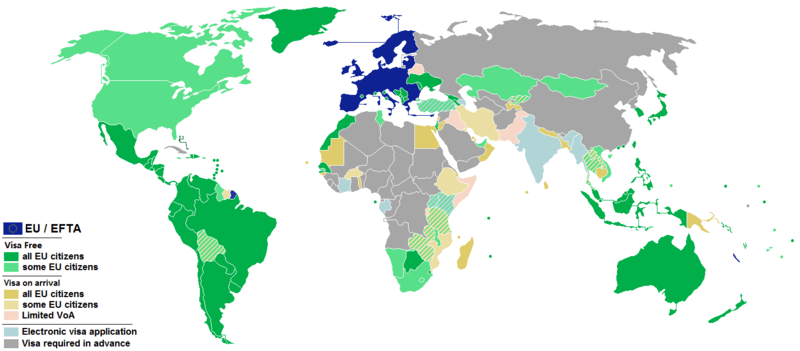
As per Regulation No 539/2001 (amended by Regulation No 1289/2013)[182] reciprocity is required from all Annex II countries and territories. That means that these countries must offer visa-free access for 90 days to all EU citizens (except citizens of Ireland and the United Kingdom) and to the citizens of Iceland, Liechtenstein, Norway and Switzerland. When this is not the case, the affected EU or Schengen member state is expected to notify the European Commission. Starting six months after the notification, the Commission may adopt an implementing act to suspend the visa-free regime for certain categories of nationals of the third country concerned, for a period of up to six months, with a possible prolongation by further periods of up to six months. If the Commission decides not to adopt such an act, it has to present a report explaining the reasons why it did not propose the measure. If after two years from the notification the third country is still requiring visas from citizens of one or more Member States, the Commission shall adopt a delegated act to re-impose the visa obligation on all citizens of the third country, for a period of 12 months. Either the European Parliament or the Council could oppose the entry into force of the delegated acts.[183] All of the states that implement the common visa rules – including Iceland, Liechtenstein, Norway, Switzerland, Bulgaria, Croatia, Cyprus and Romania – may notify the European Commission about non-compliant third states.[184]
When the European Commission carried out its first visa reciprocity assessment on 1 May 2004 following the accession of 10 new Member States, only the following Annex II countries and territories were found to offer fully reciprocal visa-free treatment to all EU citizens: Andorra, Argentina, Chile, Holy See, Hong Kong SAR, Israel, Japan, Monaco and South Korea.[185] On 24 June 2005, additional countries were found to offer full reciprocity: Guatemala, El Salvador, Honduras, Macao SAR, Mexico, New Zealand, Paraguay and San Marino.[185] However, after the accession of Romania and Bulgaria in 2007, some of these countries were found to no longer offer full reciprocity: Israel, Japan, Mexico, New Zealand and Paraguay.[186]
Since the adoption of this policy, full reciprocity has been achieved with the following countries (listed in order of achieving reciprocity):[187] Nicaragua,[185] Venezuela,[185] Uruguay,[188] Costa Rica,[186][188] Mexico,[186] New Zealand,[186] Israel,[Note 5][189] Malaysia,[189] Paraguay,[189] Panama,[185][190] Singapore,[190] Brazil[191][192] and Brunei.[193] Full reciprocity is also ensured with countries added to Annex II since 2006, such as Taiwan.[194][195]
According to a report from April 2015,[196] the Commission dismissed notifications by both Bulgaria and Romania of a general visa requirement by Australia.[197] It concluded that the Australian electronic visa 'manual processing' treatment should not be considered as equivalent to the Schengen visa application procedures and consequently will not be covered by the reciprocity mechanism.[196] In its previous report,[192] the Commission also committed to assessing certain provisions of the US electronic visa system — such as the application fee.
The current status as of November 2016, based on the Commissions communications from April and July 2016:[184][193]
- Canada: Bulgarian and Romanian citizens are still required to have visas to travel to Canada.[198] In October 2016, as part of the CETA signature negotiations it was agreed that Canada will lift visa requirements for Bulgarian and Romanian citizens on 1 December 2017.[199]
- United States: Bulgarian, Croatian, Cypriot, Polish and Romanian citizens are still required to apply for a visa to enter the US. In November 2014 the Bulgarian government announced that it will not ratify the Transatlantic Trade and Investment Partnership unless the United States lifted visa requirements for its citizens.[200]
- Japan: Full reciprocity is ensured until 31 December 2018, by granting Romanian citizens, including holders of temporary passports, a temporary visa waiver.
Special requirements
The following countries require electronic registrations for all citizens of the European Union who don't need a visa:
- Australia requires EU citizens to obtain an eVisitor, which is issued free of charge.
- Canada requires EU citizens to obtain an eTA. The application fee is 7 CAD.
- United States requires eligible EU citizens to obtain an ESTA. The application fee is 14 USD.
Stays exceeding 90 days
For stays in the Schengen Area as a whole which exceed 90 days, as a general rule, a third country national (i.e. a non-EU, EEA or Swiss national) will need to hold either a long-stay visa for a period of no longer than a year or a residence permit for longer periods. Similarly, a third-country national who wishes to stay for more than 90 days in Bulgaria, Croatia, Cyprus or Romania will be required to hold a long-stay visa or a residence permit.
Although long-stay visas issued by Schengen countries, Bulgaria, Croatia, Cyprus and Romania have the same uniform design, as a national visa, in general, the procedures and conditions for issue are determined by each individual country. Therefore, for example, whilst some Schengen countries (such as France) require applications for long-stay visas to be made in the applicant's home country, other Schengen countries permit applicants to lodge their applications after arrival. Some countries, such as Germany, Hungary, the Netherlands and Switzerland offer a hybrid regime, whereby third-country nationals are required to apply for long-stay visas in their home country, with the exception of a few nationalities who are permitted to apply for a residence permit directly upon arrival without having first to obtain a long-stay visa. For example, Germany, Hungary, the Netherlands and Switzerland allow New Zealand citizens to apply for a residence permit upon arrival without having to apply for a long-stay visa in advance, but not South African citizens.[201][202][203][204]
However, in some situations, the procedures and conditions for the issue of long-stay visas have been harmonised among all Schengen member states, Bulgaria, Croatia, Cyprus and Romania. For example, Council Directive 2004/114 has harmonised the conditions of admission of third country nationals wishing to study in a Schengen member state, Bulgaria, Croatia, Cyprus or Romania.[205] Consequently, following the deadline for the implementation of the Directive (i.e. 12 January 2007), all Schengen member states (as well as Bulgaria, Croatia, Cyprus or Romania) are obliged to apply the same criteria in dealing with applications from third country nationals who wish to be admitted to their territory in order to study (namely that the applicant must have a valid travel document covering the duration of the stay, parental authorisation (if a minor), sickness insurance, not be regarded as a threat to public policy, security or health, and payment of the relevant fee).[206]
Long-stay visas issued by a Schengen country entitle the holder to enter the Schengen Area and remain in the territory of the issuing state for a period longer than 90 days, but no more than one year. If a Schengen state wishes to allow the holder of a long-stay visa remain there for longer than a year, the state must issue him or her with a residence permit.
The holder of a long-stay visa or a residence permit issued by a Schengen country is entitled to move freely within the other states which comprise the Schengen Area for a period of up to 90 days in any 180 days.[207] Third-country nationals who are long-term residents in a Schengen state may also acquire the right to move to and settle in another Schengen state without losing their legal status and social benefits.[208]
However, some third-country nationals are permitted to stay in the Schengen Area for more than 90 days without the need to apply for a long-stay visa. For example, France does not require citizens of Andorra, the Holy See, Monaco and San Marino to apply for a long-stay visa.[209] In addition, Article 20(2) of the Convention implementing the Schengen Agreement allows for this 'in exceptional circumstances' and for bilateral agreements concluded by individual signatory states with other countries before the Convention entered into force to remain applicable. As a result, for example, New Zealand citizens are permitted to stay for up to 90 days in each of the Schengen countries (Austria, Belgium, Czech Republic, Denmark, Finland, France, Germany, Greece, Iceland, Italy, Luxembourg, The Netherlands, Norway, Portugal, Spain, Sweden and Switzerland) which had already concluded bilateral visa exemption agreements with the New Zealand Government prior to the Convention entering into force without the need to apply for long-stay visas,[30][210] but if travelling to other Schengen countries the 90 days in any 180 day period time limit applies.
Means of subsistence
In addition to general requirements, EU member states also set entry conditions for foreign nationals of countries outside the EEA and Switzerland called the "reference amounts required for the crossing of the external border fixed by national authorities" regarding means of subsistence during their stay.[211][212]
Authorities of Austria, Cyprus and Luxembourg decide on a case by case basis.
| Country | Reference amount |
|---|---|
| Belgium | €45 per day for aliens staying with a private individual; €95 per day for aliens staying at a hotel. |
| Bulgaria | €50 per day; minimum €500 per stay[213] |
| Croatia | €100 per day; but €50 for aliens possessing a certified guarantee letter, a proof of paid travel arrangements, etc. |
| Czech Republic | €40 per day up to 30 days[214] |
| Germany | €45 per day in the form of cash, credit cards and cheques but alternatively a letter of guarantee from the host.[215] |
| Denmark | DKK350 per day |
| Estonia | €78 per day or a letter of invitation |
| Finland | €30 per day[216] |
| France | €120 per day if holding no proof of accommodation; €65 per day if staying at a hotel; €32.50 per day if holding proof of accommodation.[217] |
| Greece | €50 per day; minimum total amount of €300 for a stay of up to 5 days reduced by 50% for minors[218] |
| Hungary | HUF1000 per entry or letter of invitation, confirmation of accommodation or any other credible proof.[219] |
| Iceland | ISK4,000 per day + ISK20,000 per each entry |
| Italy | €269.60 fixed sum for stays up to 5 days (€212.81 per person for groups of two and more);
6–10 days: €44.93 per day (€26.33); 11–20 days: €51.64 fixed sum + €36.67 per day (€25.82 + €22.21); 20+ days €206.58 fixed sum + €27.89 per day (€118.79 + €17.04). |
| Latvia | €14 per day or certified invitation letter |
| Liechtenstein | CHF100 per day; CHF30 for students |
| Lithuania | €40 per day |
| Malta | €48 per day |
| Netherlands | €34 per day |
| Norway | NOK500 per day (indicative for those not staying with friends or relatives) |
| Poland | PLN300 for stay not exceeding 3 days; PLN100 per day by stay exceeding 3 days; PLN20 per day if cost of the stay were paid.[220] |
| Portugal | €40 per day + €75 per entry |
| Romania | €50 per day; minimum €500 per stay |
| Slovakia | €56 per day (€30 for accommodation, €4 for breakfast, €7.5 for lunch, €7.5 for dinner, €7 for spending) or a certified invitation letter[221] |
| Slovenia | €70; €35 for minors accompanied by parents[222] |
| Spain | €583.74 minimum amount (for stays of up to 10 days); €64.86 per day in excess of 10 days.[223] |
| Sweden | SEK450 per day |
| Switzerland | CHF100 per day; CHF30 for students |
Netherlands exempts visitors from Australia, Canada, Japan, New Zealand, South Korea, United States and Vatican City from holding proof of sufficient funds and return tickets.[224] Romania requires visitors from the Republic of Macedonia, Moldova, Montenegro, Russia, Serbia and Ukraine to hold a medical insurance covering the period of stay. Romania also exempts visitors from Australia, Canada, South Korea and the United States from holding proof of sufficient funds and return tickets.[225]
Visa policy of candidate states
Countries applying to join the European Union are obliged to adopt the EU's visa policy no later than three months before they formally join the Union.[226] Schengen countries give visa-free access to nationals of all European Union candidate and applicant states except Turkey.[227] Macedonia grants 90-day visa-free entry to all Schengen Annex II nationalities, with some additions, while Montenegro and Serbia still require visas from some Annex II nationalities while having visa-free agreements with some additional countries. In addition to requiring visas from some Annex II countries, Turkey still requires visas from some Schengen states,[228] Albania allows citizens of all countries who do not require a Schengen visa to enter Albania due to their visa liberalization with Schengen area.[229]
Visa-free stays involving paid activity in the Schengen Area
Below is a table of Schengen countries which permit nationals of Annex II countries and territories to enter the country on a 90-day visa-free period of stay with the intention of working in the country during that period.[46][230][231][232][233] Nonetheless, some Schengen countries which permit certain Annex II nationals to work during their visa-free stay may still require them to obtain a work permit (either in advance or on arrival).
The table below includes Romania (which applies the Schengen Area's visa list), but excludes states which do not allow any Annex II nationals to work during their visa-free stay, namely: Austria, Bulgaria, Cyprus, the Czech Republic, Estonia, Finland, Latvia, Malta and Portugal.
| Nationality | |
|
|
|
|
|
|
|
|
|
|
|
|
|
|
|
|
|
|
|---|---|---|---|---|---|---|---|---|---|---|---|---|---|---|---|---|---|---|---|
| N/A | N/A | N/A | N/A | N/A | N/A | N/A | N/A | N/A | N/A | N/A | N/A | N/A | N/A | N/A | N/A | N/A | N/A | N/A | |
| Yes | Yes | Yes | Yes | No | No | Yes | Yes | No | Yes | No | Yes | No | Yes | No | Yes | Yes | Yes | Yes | |
| Yes | Yes | No | Yes | No | Yes | Yes | Yes | No | Yes | Yes | Yes | No | Yes | Yes | Yes | No | No | No | |
| |
Yes | Yes | Yes | Yes | No | No | No | Yes | No | Yes | No | Yes | No | Yes | No | Yes | Yes | Yes | No |
| |
Yes | Yes | Yes | Yes | Yes | No | No | No | No | Yes | No | Yes | No | Yes | No | Yes | Yes | Yes | No |
| |
Yes | Yes | No | Yes | No | Yes | Yes | Yes | No | Yes | No | Yes | No | Yes | Yes | Yes | No | No | No |
| |
Yes | Yes | No | Yes | No | Yes | Yes | Yes | No | Yes | No | Yes | No | Yes | Yes | Yes | No | No | No |
| N/A | N/A | N/A | N/A | N/A | N/A | N/A | N/A | N/A | N/A | N/A | N/A | N/A | N/A | N/A | N/A | N/A | N/A | N/A | |
| |
Yes | Yes | Yes | Yes | No | No | No | No | No | Yes | No | Yes | No | Yes | No | Yes | Yes | Yes | No |
| |
Yes | Yes | Yes | Yes | No | No | No | Yes | No | Yes | No | Yes | No | Yes | No | Yes | Yes | Yes | Yes |
| |
Yes | Yes | Yes | Yes | Yes | No | No | Yes | No | Yes | No | Yes | Yes | Yes | No | Yes | Yes | Yes | No |
| |
Yes | Yes | Yes | Yes | No | No | No | Yes | No | Yes | No | Yes | No | Yes | No | Yes | Yes | Yes | No |
| |
N/A | N/A | N/A | N/A | N/A | N/A | N/A | N/A | N/A | N/A | N/A | N/A | N/A | N/A | N/A | N/A | N/A | N/A | N/A |
| |
Yes | Yes | Yes | Yes | No | No | No | Yes | No | Yes | No | Yes | No | Yes | No | Yes | Yes | Yes | No |
| |
N/A | N/A | N/A | N/A | N/A | N/A | N/A | N/A | N/A | N/A | N/A | N/A | N/A | N/A | N/A | N/A | N/A | N/A | N/A |
| |
Yes | Yes | Yes | Yes | No | No | No | Yes | No | Yes | No | Yes | No | Yes | No | Yes | Yes | Yes | No |
| |
N/A | N/A | N/A | N/A | N/A | N/A | N/A | N/A | N/A | N/A | N/A | N/A | N/A | N/A | N/A | N/A | N/A | N/A | N/A |
| |
Yes | Yes | Yes | Yes | No | No | No | Yes | No | Yes | No | Yes | No | Yes | No | Yes | Yes | Yes | No |
| |
Yes | Yes | Yes | Yes | No | No | No | Yes | No | Yes | No | Yes | No | Yes | No | Yes | Yes | Yes | No |
| |
Yes | Yes | Yes | Yes | No | No | No | No | No | Yes | No | No | No | Yes | No | Yes | Yes | Yes | No |
| |
Yes | Yes | Yes | Yes | Yes | No | No | Yes | No | Yes | No | Yes | No | Yes | No | Yes | Yes | Yes | No |
| |
Yes | Yes | Yes | Yes | Yes | No | No | No | No | Yes | No | Yes | Yes | Yes | No | Yes | Yes | Yes | Yes |
| |
Yes | Yes | Yes | Yes | No | No | No | No | No | Yes | No | No | No | Yes | No | Yes | Yes | Yes | No |
| |
N/A | N/A | N/A | N/A | N/A | N/A | N/A | N/A | N/A | N/A | N/A | N/A | N/A | N/A | N/A | N/A | N/A | N/A | N/A |
| |
Yes | Yes | Yes | Yes | No | No | No | Yes | No | Yes | No | Yes | No | Yes | No | Yes | Yes | Yes | Yes |
| |
Yes | Yes | No | Yes | No | Yes | Yes | Yes | No | Yes | No | Yes | No | Yes | Yes | Yes | No | No | No |
| |
Yes | Yes | Yes | Yes | No | No | No | No | No | Yes | No | Yes | No | Yes | No | Yes | Yes | Yes | No |
| |
N/A | N/A | N/A | N/A | N/A | N/A | N/A | N/A | N/A | N/A | N/A | N/A | N/A | N/A | N/A | N/A | N/A | N/A | N/A |
| |
Yes | Yes | Yes | Yes | No | No | No | Yes | No | Yes | No | Yes | No | Yes | No | Yes | Yes | Yes | Yes |
| |
N/A | N/A | N/A | N/A | N/A | N/A | N/A | N/A | N/A | N/A | N/A | N/A | N/A | N/A | N/A | N/A | N/A | N/A | N/A |
| |
Yes | Yes | Yes | Yes | Yes | No | No | Yes | No | Yes | No | Yes | No | Yes | No | Yes | Yes | Yes | Yes |
| |
Yes | Yes | Yes | Yes | No | No | No | Yes | No | Yes | No | Yes | No | Yes | No | Yes | Yes | Yes | No |
| |
N/A | N/A | N/A | N/A | N/A | N/A | N/A | N/A | N/A | N/A | N/A | N/A | N/A | N/A | N/A | N/A | N/A | N/A | N/A |
| |
Yes | Yes | Yes | Yes | No | No | No | Yes | No | Yes | No | Yes | No | Yes | No | Yes | Yes | Yes | No |
| |
Yes | Yes | Yes | Yes | No | No | No | Yes | No | Yes | No | Yes | No | Yes | No | Yes | Yes | Yes | No |
| |
N/A | N/A | N/A | N/A | N/A | N/A | N/A | N/A | N/A | N/A | N/A | N/A | N/A | N/A | N/A | N/A | N/A | N/A | N/A |
| |
Yes | Yes | No | Yes | No | Yes | Yes | Yes | No | Yes | No | Yes | No | Yes | Yes | Yes | No | No | No |
| |
N/A | N/A | N/A | N/A | N/A | N/A | N/A | N/A | N/A | N/A | N/A | N/A | N/A | N/A | N/A | N/A | N/A | N/A | N/A |
| |
N/A | N/A | N/A | N/A | N/A | N/A | N/A | N/A | N/A | N/A | N/A | N/A | N/A | N/A | N/A | N/A | N/A | N/A | N/A |
| |
N/A | N/A | N/A | N/A | N/A | N/A | N/A | N/A | N/A | N/A | N/A | N/A | N/A | N/A | N/A | N/A | N/A | N/A | N/A |
| |
Yes | Yes | Yes | Yes | No | No | No | Yes | Yes | Yes | No | Yes | No | Yes | No | Yes | Yes | Yes | Yes |
| |
N/A | N/A | N/A | N/A | N/A | N/A | N/A | N/A | N/A | N/A | N/A | N/A | N/A | N/A | N/A | N/A | N/A | N/A | N/A |
| |
Yes | Yes | No | Yes | No | Yes | Yes | Yes | No | Yes | No | Yes | No | Yes | Yes | Yes | No | No | No |
| |
Yes | Yes | Yes | Yes | No | No | No | No | No | Yes | No | Yes | No | Yes | No | Yes | Yes | Yes | Yes |
| |
Yes | Yes | Yes | Yes | Yes | No | No | No | No | Yes | No | Yes | No | Yes | No | Yes | Yes | Yes | No |
| |
N/A | N/A | N/A | N/A | N/A | N/A | N/A | N/A | N/A | N/A | N/A | N/A | N/A | N/A | N/A | N/A | N/A | N/A | N/A |
| |
N/A | N/A | N/A | N/A | N/A | N/A | N/A | N/A | N/A | N/A | N/A | N/A | N/A | N/A | N/A | N/A | N/A | N/A | N/A |
| |
N/A | N/A | N/A | N/A | N/A | N/A | N/A | N/A | N/A | N/A | N/A | N/A | N/A | N/A | N/A | N/A | N/A | N/A | N/A |
| |
N/A | N/A | N/A | N/A | N/A | N/A | N/A | N/A | N/A | N/A | N/A | N/A | N/A | N/A | N/A | N/A | N/A | N/A | N/A |
| |
N/A | N/A | N/A | N/A | N/A | N/A | N/A | N/A | N/A | N/A | N/A | N/A | N/A | N/A | N/A | N/A | N/A | N/A | N/A |
| |
Yes | Yes | Yes | Yes | Yes | No | No | No | No | Yes | No | Yes | Yes | Yes | No | Yes | Yes | Yes | No |
| |
Yes | Yes | Yes | Yes | No | No | No | Yes | No | Yes | No | Yes | No | Yes | No | Yes | Yes | Yes | No |
| |
N/A | N/A | N/A | N/A | N/A | N/A | N/A | N/A | N/A | N/A | N/A | N/A | N/A | N/A | N/A | N/A | N/A | N/A | N/A |
| |
Yes | Yes | Yes | Yes | No | No | No | Yes | Yes | Yes | No | Yes | No | Yes | No | Yes | Yes | Yes | Yes |
| |
Yes | Yes | Yes | Yes | No | No | No | No | No | Yes | No | Yes | No | Yes | No | Yes | Yes | Yes | No |
| Nationality | |
|
|
|
|
|
|
|
|
|
|
|
|
|
|
|
|
|
|
Validity for other countries
Schengen visas that are valid for further travel are accepted as substitute visas for national visas in the following countries:
 Albania — 90 days; must hold a multiple entry C visa or D visa used to enter the Schengen Area at least once.
Albania — 90 days; must hold a multiple entry C visa or D visa used to enter the Schengen Area at least once.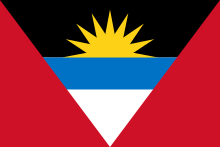 Antigua and Barbuda — 30 days; USD100 visa waiver fee applies.
Antigua and Barbuda — 30 days; USD100 visa waiver fee applies. Belarus — 3 days; for nationals of China only.
Belarus — 3 days; for nationals of China only. Bulgaria — 90 days; must hold a double or multiple entry C visa valid for the period of stay.
Bulgaria — 90 days; must hold a double or multiple entry C visa valid for the period of stay. Bosnia and Herzegovina — 15 days; must hold a multiple entry visa.[235]
Bosnia and Herzegovina — 15 days; must hold a multiple entry visa.[235] Colombia — 90 days;
Colombia — 90 days;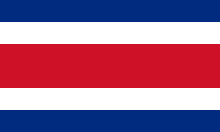 Costa Rica — 30 days or less if the visa is about to expire; must hold a multiple entry visa.
Costa Rica — 30 days or less if the visa is about to expire; must hold a multiple entry visa. Croatia — 90 days; must hold a double or multiple entry C visa valid for the period of stay.
Croatia — 90 days; must hold a double or multiple entry C visa valid for the period of stay. Cyprus — 90 days; must hold a double or multiple entry C visa valid for the period of stay.
Cyprus — 90 days; must hold a double or multiple entry C visa valid for the period of stay. Dominican Republic — 90 days;
Dominican Republic — 90 days;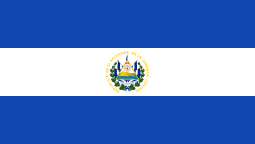 El Salvador — 90 days; not applicable to all nationalities.
El Salvador — 90 days; not applicable to all nationalities. Georgia — 90 days within any 180 day period;
Georgia — 90 days within any 180 day period;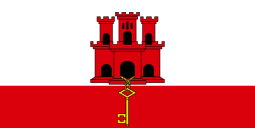 Gibraltar — 21 days; not applicable to all nationalities.
Gibraltar — 21 days; not applicable to all nationalities.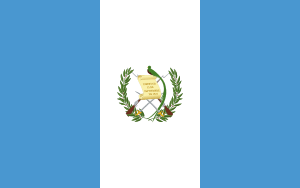 Guatemala — 90 days; not applicable to all nationalities.
Guatemala — 90 days; not applicable to all nationalities.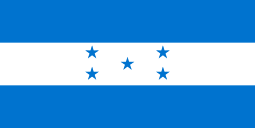 Honduras — 90 days; not applicable to all nationalities.
Honduras — 90 days; not applicable to all nationalities.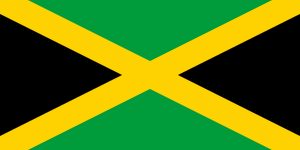 Jamaica — 30 days; not applicable to all nationalities.
Jamaica — 30 days; not applicable to all nationalities.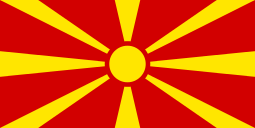 Macedonia — 15 days; must hold a C visa valid for at least 5 days beyond the period of stay and must be valid for re-entry to any of the Schengen Area member states.
Macedonia — 15 days; must hold a C visa valid for at least 5 days beyond the period of stay and must be valid for re-entry to any of the Schengen Area member states. Montenegro — 30 days;
Montenegro — 30 days; Nicaragua — 90 days; not applicable to all nationalities.
Nicaragua — 90 days; not applicable to all nationalities. Panama — 30/180 days; must hold a visa valid for at least 2 more entries.
Panama — 30/180 days; must hold a visa valid for at least 2 more entries. Philippines — 7 days; for nationals of China and India only.
Philippines — 7 days; for nationals of China and India only.  Romania — 90 days; must hold a double or multiple entry C visa valid for the period of stay.
Romania — 90 days; must hold a double or multiple entry C visa valid for the period of stay.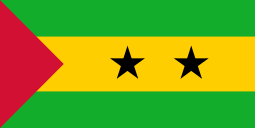 Sao Tome and Principe — 15 days;
Sao Tome and Principe — 15 days; Serbia — 90 days;
Serbia — 90 days; Turkey — certain nationalities can obtain an electronic Turkish visa if holding a valid Schengen visa.
Turkey — certain nationalities can obtain an electronic Turkish visa if holding a valid Schengen visa.
See also
- Common Travel Area
- Central America-4 Border Control Agreement
- Foreign relations of the European Union
- Long-term resident (European Union)
- Trans-Tasman Travel Arrangement
- Visa Information System
- Visa policy of Ireland
- Visa policy of Northern Cyprus
- Visa policy of the British Overseas Territories
- Visa policy of the French overseas departments and territories
- Visa policy of the Kingdom of the Netherlands in the Caribbean
- Visa policy of Svalbard
- Visa policy of the United Kingdom
- Visa requirements for European Union citizens
- Visa Waiver Program
- Working holiday visa (a type of visa issued by many EU member states to young people from foreign countries to undertake employment (and sometimes study) for the purpose of supplementing their travel funds)
Notes
- ↑ Black list of passport types where a visa is required for entry, corresponding to Annex I of Council Regulation (EC) No 539/2001.[55]
- ↑ Transit list of passport types where a visa is required not only for entry, but also for airport transit, corresponding to Annex IV of Council regulation No. 810/2009.[56]
- ↑ Fantasy passports are either "Passports" issued by minorities, sects and population groups; or identity documents, etc., issued by private organisations and individuals. Camouflage passports are passports issued in the name of former States no longer in existence.[57]
- ↑ An airport transit visa is only required for Russians when transiting through a French airport having arrived from an airport in Armenia, Belarus, Azerbaijan, Egypt, Georgia, Moldova, Turkey, or Ukraine.
- ↑ Strictly speaking, full reciprocity has not been achieved with Israel as German citizens born before 1 January 1928 need a visa for Israel. The German government, however, has apparently avoided reporting this fact to the European Commission.
- 1 2 3 4 5 6 Holders of biometric passports only.
- ↑ Persons holding a Hong Kong Special Administrative Region passport. See also British National (Overseas) for persons residing in Hong Kong holding a form of British nationality.
- ↑ Persons holding a Macau Special Administrative Region passport.
- ↑ Visas are required from Serbian citizens holding passports issued by the Serbian Coordination Directorate.
- ↑ The visa waivers granted by the European Union, the United Kingdom and Ireland to Taiwan passport holders have not altered the European Union member states' non-recognition of Taiwan as a sovereign country. For this reason, Taiwan is listed in Annex II by the European Commission under the heading "entities and territorial authorities that are not recognised as states by at least one member state", by Bulgaria as "China, Taipei" (mfa.bg) and by Romania under the heading "Special Administrative Regions of the People's Republic of China"(mae.ro).
- ↑ Only for holders with their personal ID numbers stipulated in their respective passports. Taiwan issues passports without ID numbers to some persons not having the right to reside in Taiwan, including nationals without household registration and certain persons from Hong Kong, Macau, and mainland China.[40][41]
- ↑ The entry Mariana Islands has been removed from the "visa required" list on 11 January 2011. As there is no Northern Mariana Islands citizenship in contrast to the United States citizenship, this entry produced no effects.
References
- ↑ Schengen Visa. Belgian government website: List of third countries whose nationals are exempt from the visa requirement (in French). General visa information for Czech Republic. Danish visa rules. Visiting Estonia. Visa requirement and travel documents accepted by Finland. Foreign nationals holding ordinary passports exempt from visa requirements. Visas for Greece. Consular Services – Hungary. Visas for Iceland. Visa for Italy. Consular information for Latvia. Consular information for Lithuania. VISAS & Immigration for Luxembourg. Travelling to Malta. Visa for the Netherlands. Visa for Norway. Visa for Poland. Visa Information for Portugal. Consular information and travel visa for Slovakia. Entry into the Republic of Slovenia and the Schengen Area. Information for Foreigners for Spain. Visiting Sweden. Information for Entry to Switzerland
- ↑ "Visa policy". European Commission. Retrieved 6 January 2014.
- ↑ "Directive 2004/38/EC of the European Parliament and of the Council of 29 April 2004 on the right of citizens of the Union and their family members to move and reside freely within the territory of the Member States". 2004-04-29. Retrieved 2008-12-17.
- ↑ Summary of the Directive 2004/38/EC "Right of Union citizens and their family members to move and reside freely within the territory of the Member States". 2006-05-02. Retrieved 2008-12-17.
- ↑ "Decision of the EEA Joint Committee No 158/2007 of 7 December 2007 amending Annex V (Free movement of workers) and Annex VIII (Right of establishment) to the EEA Agreement" (PDF). 2007-12-07. Retrieved 2008-12-22.
- 1 2 Article 6.3.2 of the Practical Handbook for Border Guards (C (2006) 5186)
- 1 2 Judgement of the European Court of Justice of 17 February 2005, Case C 215/03, Salah Oulane vs. Minister voor Vreemdelingenzaken en Integratie ()
- ↑ Article 27 of Directive 2004/38/EC (Directive 2004/38/EC of the European Parliament and of the Council of 29 April 2004 on the right of citizens of the Union and their family members to move and reside freely within the territory of the Member States).
- ↑ Article 28 of Directive 2004/38/EC (Directive 2004/38/EC of the European Parliament and of the Council of 29 April 2004 on the right of citizens of the Union and their family members to move and reside freely within the territory of the Member States).
- ↑ Article 29 of Directive 2004/38/EC (Directive 2004/38/EC of the European Parliament and of the Council of 29 April 2004 on the right of citizens of the Union and their family members to move and reside freely within the territory of the Member States).
- ↑ Articles 3(1) and 5(2) of the Directive 2004/38/EC (Directive 2004/38/EC of the European Parliament and of the Council of 29 April 2004 on the right of citizens of the Union and their family members to move and reside freely within the territory of the Member States).
- ↑ Entering the UK as the holder of an Article 10 residence card
- ↑ As listed in Annex II of the Council Regulation 539/2001.
- ↑ As listed in annex I of the Council Regulation 539/2001.
- ↑ "Visa requirements for Bulgaria". The Republic of Bulgaria Ministry of Foreign Affairs. Retrieved May 2015. Check date values in:
|access-date=(help) - ↑ Visa requirements overview
- ↑ "Visa requirements for Cyprus". Ministry of Foreign Affairs of the republic of Cyprus. Retrieved 16 July 2010.
- 1 2 Romania, Ministry of foreign Affairs. Retrieved May 2015
- 1 2 Your Europe: Non-EU family members
- 1 2 embassy – Visas
- ↑ High Commission of the Republic of Cyprus in London – Visa Information
- 1 2 Romania Ministry of Foreign Affairs: Do I need a visa to come to Romania? Conditions of travelling to Romania
- ↑ Consolidated version of Council regulation No. 539/2001, as of 9 June 2014
- ↑ Visa Free Travel to EU Signed
- ↑ Ministry: Visa-Free Travel To Schengen Nations
- ↑ Officially referred to as "BRITISH CITIZENS WHO ARE NOT NATIONALS OF THE UNITED KINGDOM OF GREAT BRITAIN AND NORTHERN IRELAND FOR THE PURPOSES OF UNION LAW: British nationals (Overseas), British overseas territories citizens (BOTC) British overseas citizens (BOC) British protected persons (BPP) and British subjects (BS)'." REGULATION (EU) No 509/2014 OF THE EUROPEAN PARLIAMENT AND OF THE COUNCIL
- 1 2 3 Article 1(5)(b) of Regulation (EU) No 610/2013 of the European Parliament and of the Council of 26 June 2013 amending Regulation (EC) No 562/2006 of the European Parliament and of the Council establishing a Community Code on the rules governing the movement of persons across borders (Schengen Borders Code), the Convention implementing the Schengen Agreement, Council Regulations (EC) No 1683/95 and (EC) No 539/2001 and Regulations (EC) No 767/2008 and (EC) No 810/2009 of the European Parliament and of the Council (OJ L 182, 29 June 2013, p. 1. Prior to Regulation (EU) No 610/2013, in response to an Ad-hoc Query by the European Migration Network), the national agencies responsible for border control in 9 Member States confirmed that Annex II nationals holding residence permits or long-stay visas would be entitled to stay for a further period of three months without a visa upon the expiration of the residence permit/long-stay visa. However, following the entry in force of Article 1(5)(b) of Regulation (EU) No 610/2013 on 18 October 2013, all Annex II nationals holding residence permits or long-stay visas issued by a Schengen member state are entitled automatically to stay for a further period of three months without a visa upon the expiration of the residence permit/long-stay visa (the conditions of a visa-free stay would apply to this period of three months after the expiration of the residence permit/long-stay visa, rather than the conditions of stay associated with the residence permit/long-stay visa).
- ↑
- ↑ Delegation of the European Union to New Zealand: Frequently Asked Questions
- 1 2 NZ Government Safetravel travel tips – travel to Europe
- ↑ Visa for New Zealand residents, Embassy of Switzerland in Wellington, 20 December 2011, archived from the original on 1 January 2012, retrieved 1 January 2012
- ↑ Border controls in Europe (PDF), Embassy of France in Wellington, archived from the original on 1 January 2012, retrieved 1 January 2012
- ↑ Frequently Asked Questions, Embassy of Spain in Wellington, 29 April 2009, archived from the original on 1 January 2012, retrieved 1 January 2012
- ↑ Ministry of the Interior of the Czech Republic: Entering the Czech Republic, duties, length of stay – Bilateral agreements on visa-free relations
- ↑ Note that, additionally, the old method of calculating the length of the visa-free stay (i.e. 3 months within 6 months instead of 90 days in any 180 day period) still applies to citizens of Guatemala, Honduras, Nicaragua, Panama and Paraguay in the Czech Republic.
- ↑ Bilateral Visa Agreements
- ↑ http://www.nyidanmark.dk/en-us/coming_to_dk/visa/Visa_free_travel.htm
- ↑ See The Council of the European Union: Replies to the questionnaire on the Presidency project for a system of electronic recording of entry and exit dates of third-country nationals in the Schengen area (PDF), pg 43.
- ↑ Article 5 of the Schengen Borders Code (OJ L 105, 13 April 2006, p. 1).
- 1 2 ROC (Taiwan) Immigration Reference Guide for Civil Carriers (PDF), National Immigration Agency, 18 March 2011, retrieved 21 December 2011
- 1 2 "護照條例施行細則", Laws & Regulations Database of The Republic of China, Taipei: Ministry of Justice, 29 June 2011, retrieved 21 December 2011. English translation available from the Bureau of Consular Affairs.
- ↑ mfa.bg
- ↑ mae.ro
- 1 2 "Regulation (EU) No 1211/2010 of the European Parliament and of the Council of 15 December 2010 amending Council Regulation (EC) No 539/2001 listing the third countries whose nationals must be in possession of visas when crossing the external borders and those whose nationals are exempt from that requirement". Council of the European Union. 22 December 2010. Retrieved 22 December 2010.
- ↑ 94/795/JHA: Council Decision of 30 November 1994 on a joint action adopted by the Council on the basis of Article K.3.2.b of the Treaty on European Union concerning travel facilities for school pupils from third countries resident in a Member State
- 1 2 Information pursuant to Council Regulation (EC) No 539/2001 of 15 March 2001 listing the third countries whose nationals must be in possession of visas when crossing the external borders and those whose nationals are exempt from that requirement
- 1 2 Ministry of Foreign Affairs – Travel Information for Foreign Visitors – Entry Regulations for Cyprus
- ↑ Regulation (EC) No 810/2009 of the European Parliament and of the Council of 13 July 2009 establishing a Community Code on Visas (Visa Code), Article 16
- ↑ List of notifications of bilateral agreements under Article 19 of Local Border Traffic Regulation
- ↑ http://www.gov39.ru/news/101/102771/
- ↑ http://fedpress.ru/news/cfo/policy/1658315
- ↑ "Regulation (EC) No 1931/2006 of the European Parliament and of the Council of 20 December 2006". 30 December 2006. Retrieved 2 March 2008.
- ↑ Judgement of the European Court of Justice of 21 March 2013, Case C‑254/11, Szabolcs-Szatmár-Bereg Megyei Rendőrkapitányság Záhony Határrendészeti Kirendeltsége v Oskar Shomodi: Judgement & Press release
- ↑ 5 years in Schengen for Russians
- ↑ Consolidated version of regulation 539/2001 as of 2011-01-11
- 1 2 3 Council regulation No. 810/2009 of 13 July 2009, Annex IV Council of the European Union
- 1 2 3 4 5 "Table of travel documents entitling the holder to cross the external borders and which may be endorsed with a visa". Council of the European Union. 17 June 2010. Archived from the original on 10 May 2011. Retrieved 20 July 2010.
- ↑ Information pursuant to Council Regulation (EC) No 539/2001 of 15 March 2001 listing the third countries whose nationals must be in possession of visas when crossing the external borders and those whose nationals are exempt from that requirement
- ↑ Annex 5 - Information on national derogations from the visa requirements
- ↑
- ↑
- ↑
- ↑
- ↑
- ↑
- ↑
- ↑
- ↑
- ↑
- ↑
- ↑
- ↑
- ↑
- ↑
- ↑
- ↑
- ↑
- ↑
- ↑
- ↑
- ↑
- ↑
- ↑
- ↑
- ↑
- ↑
- ↑ http://www.stjornartidindi.is/DocumentActions.aspx?ActionType=Open&documentID=D5B29BF5-0B3B-475F-BA51-202024708430
- ↑
- ↑
- ↑
- ↑
- 1 2 Article 12(2) of the Schengen Convention.
- ↑ Ministry of Foreign Affairs of Denmark, Embassy of Denmark, New Delhi. "Visa requirements for Indians travelling to Denmark". Archived from the original on 14 May 2007. Retrieved 25 December 2007.
- 1 2 Article 9 of the Schengen Visa Code
- ↑ Article 15 of the Preamble of Regulation (EC) No 810/2009 of the European Parliament and of the Council of 13 July 2009 establishing a Community Code on Visas
- 1 2 3 Handbook for the organisation of visa sections and local Schengen cooperation, p.21
- ↑ Article 13 of the Schengen Visa Code
- ↑ Article 23 of the Schengen Visa Code
- ↑ Article 16 of the Schengen Visa Code
- ↑ Commission Decision establishing the Handbook for the organisation of visa sections and local Schengen cooperation
- ↑ Article 39 and Annex X of the Schengen Visa Code
- ↑ Article 1.2 of the Practical Handbook for Border Guards (C (2006) 5186)
- ↑ Romanian minister: Non-EU citizens don't need visa to enter Romania if they already have a Schengen visa
- ↑ Issued by Romania, Cyprus, Croatia transit, short-stay visas to be recognised by Bulgaria
- ↑ Article 7.2 of the Practical Handbook for Border Guards (C (2006) 5186)
- ↑ Article 7.5 of the Practical Handbook for Border Guards (C (2006) 5186)
- 1 2 Complete statistics on short-stay visas issued by the Schengen States
- ↑ Visa statistics for consulates, 2015
- ↑ Non-EU nationals residing in the UK who are under the visa obligation.
- ↑ Visa facilitation agreements
- ↑ Cooperation with non-EU countries on readmission of irregular migrants
- ↑ Article 25 of the Schengen Visa Code
- ↑ Formin.finland.fi
- ↑ Ocma.gov.lv
- ↑ Washington.polemb.net
- ↑ Mzz.gov.si
- ↑ Swedenabroad.com
- 1 2 3 4 5 6 7 8 9 10 11 12 13 14 15 List of third countries whose nationals are required to be in possession of an airport transit visa when passing through the international transit area of airports situated on the territory of one/some Member States (as of 26 December 2013). Retrieved 26 December 2013 via the European Commission website on visa policy
- ↑ "Pragmatic interim solution before joining Schengen". Liechtenstein Government Spokesperson's Office. 18 November 2008. Archived from the original on 6 December 2008. Retrieved 11 August 2010.
- ↑
- ↑ Eesti.at, Estland Holiday Navigator
- ↑ What visa do I need to transit through an airport in France? France Diplomatie (French Ministry of Foreign and European Affairs)
- ↑ Arrêté du 10 mai 2010 relatif aux documents et visas exigés pour l'entrée des étrangers sur le territoire européen de la France, article 4 (in French)
- ↑ Transit Visa Country List [Welcome to germany.info]
- ↑ General information for entering Hungary, a member of the Schengen Area Consulate-general of the republic of Hungary in New Zealand
- ↑ Issuance of visas Migracijos Departamentas (Lithuanian Republic)
- ↑ List 2: ID and visa provisions – particularities regardless of nationality (version of 10 February 2012) Swiss Federal Office for Migration
- ↑ EU Gives Moldovans 'Action Plan' For Visa-Free Travel, Radio Free Europe/Radio Liberty (24 January 2010)
- ↑ Lithuanian minister: EU, Moldova may shift to visa-free travel in early 2014
- ↑
- 1 2 "Parliament gives green light to visa-free travel for Moldovan citizens". European Parliament. 2014-02-27. Retrieved 2014-02-27.
- 1 2 "EU lifts visa restrictions on Moldova". EUobserver. 2014-04-03. Retrieved 2015-11-27.
- ↑ EU signs visa waiver agreement with the United Arab Emirates
- ↑ Agreement between the European Union and the United Arab Emirates on the short-stay visa waiver
- ↑ EU signs visa waiver agreement with Timor Leste
- ↑ EU signs visa waiver agreements with 7 ACP countries
- ↑ Agreement between the European Union and the Kingdom of Tonga on the short-stay visa waiver
- ↑ Agreement between the European Union and the Kingdom of Tonga on the short-stay visa waiver
- ↑ Agreement between the European Union and the Republic of Palau on the short-stay visa waiver
- ↑ "Adoption of a Council Decision authorising the opening of negotiations on behalf of the European Union on a short-stay visa waiver Agreement for holders of diplomatic passports between the European Union and the People's Republic of China". Council of the European Union. 2015-09-04. Retrieved 2015-09-07.
- ↑ "China and EU Agree to Short-Stay Diplomatic Visa Waiver". crienglish.com. 2016-03-01. Retrieved 2016-03-20.
- ↑ "中国政府和爱尔兰政府关于互免持外交、公务(官员)护照人员签证的协定将于2015年9月23日生效(The agreement between Chinese and Irish governments on visa waiver of diplomatic and official passports will be in effect on 23 September 2015)". Ministry of Foreign Affairs of the People's Republic of China . 2015-09-21. Retrieved 2016-03-20.
- ↑ Proposal for a REGULATION OF THE EUROPEAN PARLIAMENT AND OF THE COUNCIL establishing a European Travel Information and Authorisation System (ETIAS) and amending Regulations (EU) No 515/2014, (EU) 2016/399, (EU) 2016/794 and (EU) 2016/1624
- 1 2 Security Union: Commission proposes a European Travel Information and Authorisation System
- ↑ Security Union: A European Travel Information and Authorisation System - Questions & Answers
- ↑ Proposal for a REGULATION OF THE EUROPEAN PARLIAMENT AND OF THE COUNCIL establishing a European Travel Information and Authorisation System (ETIAS) See pages 22-23.
- ↑ Proposal for a REGULATION OF THE EUROPEAN PARLIAMENT AND OF THE COUNCIL establishing a Registered Traveller Programme (EUROPEAN COMMISSION 2013)
- ↑ Proposal for a REGULATION OF THE EUROPEAN PARLIAMENT AND OF THE COUNCIL establishing an Entry/Exit System (EES) to register entry and exit data of third country nationals crossing the external borders of the Member States of the European Union (EUROPEAN COMMISSION 2013)
- ↑ Let citizens of Colombia, Peru and UAE visit EU without visas, say MEPs
- ↑ European Parliament backs visa-free travel for UAE citizens
- ↑ European Union opens doors to 16 island nations
- ↑ Lithuanian Presidency reaches agreement on visa-free travel for citizens of 19 countries
- ↑ EU, Ukraine Agree On 'Road Map' For Visa-Free Travel, Radio Free Europe/Radio Liberty (22 November 2010)
- ↑ "Commissioner Malmström presents Action Plan on Visa Liberalisation with Georgia". Europa.eu. 25 February 2013. Retrieved 17 March 2013.
- ↑ "Commission Progress Report: Georgia meets criteria for visa liberalisation". Europa.eu. 18 December 2015. Retrieved 19 December 2015.
- ↑ "Commission Progress Report: Ukraine meets criteria for visa liberalisation". Europa.eu. 18 December 2015. Retrieved 19 December 2015.
- ↑ , Europa.eu (14 June 2012)
- ↑ "Commission adopts final visa liberalisation report for Kosovo". Europa.eu. 18 December 2015. Retrieved 19 December 2015.
- ↑ Kosovo hits out at EU for not relaxing visa requirement
- ↑ Kosovo won't enjoy visa liberalization in 2016
- ↑ "Cecilia Malmström signs the Readmission Agreement and launches the Visa Liberalisation Dialogue with Turkey". European Commission. 2013-12-16. Retrieved 2014-01-05.
- ↑
- ↑ "European Commission proposes to lift visa obligations for citizens of Georgia". European Commission. 2016-03-09. Retrieved 2016-04-20.
- ↑ "European Commission proposes visa-free travel for the people of Kosovo". European Commission. 2016-05-04. Retrieved 2016-05-07.
- ↑ "European Commission opens way for decision by June on visa-free travel for citizens of Turkey". European Commission. 2016-05-04. Retrieved 2016-05-07.
- ↑ "European Commission proposes visa-free travel for citizens of Ukraine". European Commission. 2016-04-20. Retrieved 2016-04-20.
- ↑ http://www.antaranews.com/en/news/99501/indonesian-government-proposes-free-schengen-visa
- ↑ http://www.thejakartapost.com/news/2015/09/28/france-support-ri-s-schengen-visa-free-proposal.html
- ↑ http://en.tempo.co/read/news/2015/09/29/055704744/France-Appreciate-Indonesias-Commitment-on-Climate-Change
- ↑ http://www.thejakartapost.com/news/2015/10/01/kalla-meets-luxembourg-pm-dutch-queen.html
- ↑ http://www.antaranews.com/en/news/101270/indonesia-finland-to-explore-renewable-energy-cooperation
- ↑ http://news.detik.com/berita/3063396/hongaria-dukung-indonesia-dapatkan-bebas-visa-schengen
- ↑ http://waspada.co.id/warta/dubes-harapkan-jokowi-kunjungi-swiss/
- ↑ http://www.antaranews.com/berita/527525/indonesia-usul-bebas-visa-schengen-untuk-wni
- ↑ http://www.thejakartapost.com/news/2015/11/05/indonesia-proposes-schengen-visa-waiver.html
- ↑ http://en.tempo.co/read/news/2015/11/05/055716154/Indonesia-Proposes-Schengen-Visa-Exemption-to-EU
- ↑ http://dunia.news.viva.co.id/news/read/740501-indonesia-klaim-direstui-ue-dapat-bebas-visa-schengen
- ↑ http://www.thejakartapost.com/news/2015/11/20/ri-visa-waiver-cards-says-envoy.html
- ↑ Statement by President Barroso at the press conference following the EU-Russia Summit Press conference Brussels, 15 December 2011, Europa.eu (15 December 2011)
- ↑ "Россия и ЕС согласовали вопрос о биометрических служебных паспортах". РИА Новости.
- ↑ http://www.euronews.com/2014/03/06/eu-suspends-talks-on-visa-free-travel-with-russia-and-threatens-further-/
- ↑ Regulation (EU) No 1289/2013 of the European Parliament and of the Council of 11 December 2013 amending Council Regulation (EC) No 539/2001 listing the third countries whose nationals must be in possession of visas when crossing the external borders and those whose nationals are exempt from that requirement (OJ L 347, 20/12/2013, p. 74–80).
- ↑ The details of the procedure are set out in Articles 1(4) of Regulation (EC) No 539/2001 as amended by Regulation (EU) No 1289/2013 of the European Parliament and of the Council of 11 December 2013(OJ L 347, 20/12/2013, p. 74–80).
- 1 2 State of play and the possible ways forward as regards the situation of non-reciprocity with certain third countries in the area of visa policy, European Commission, 12 April 2016.
- 1 2 3 4 5 First reciprocity report, January 2006
- 1 2 3 4 Third reciprocity report, September 2007
- ↑ EU Visa policy reports
- 1 2 Second reciprocity report, October 2006
- 1 2 3 Fourth reciprocity report, September 2008
- 1 2 Fifth reciprocity report, October 2009
- ↑ Consilium.europa.eu, Council of the European Union.
- 1 2 "Seventh report on certain third countries' maintenance of visa requirements in breach of the principle of reciprocity" (PDF). European Commission. 26 November 2012. Retrieved 27 November 2012.
- 1 2 "COMMUNICATION FROM THE COMMISSION TO THE EUROPEAN PARLIAMENT AND THE COUNCIL State of play and the possible ways forward as regards the situation of non-reciprocity with certain third countries in the area of visa policy(Follow-up of the Communication of 12 April)" (PDF). European Commission. 13 July 2016. Retrieved 14 July 2016.
- ↑ Eliminarea obligativităţii deţinerii vizei de intrare pe teritoriul statelor membre ale Uniunii Europene pentru resortisanţii taiwanezi: "Intrarea în vigoare a acestui Regulament asigură extinderea la 90 de zile de la data intrării a dreptului de şedere fără viză în Taiwan pentru cetăţenii statelor membre Schengen precum şi pentru cetăţenii din România, Bulgaria şi Cipru ca urmare a unei decizii unilaterale adoptată la Taipei."
- ↑ Visa-Exempt Entry, BOCA.gov.tw
- 1 2 "Report from the Commission of 22.4.2015 assessing the situation of non-reciprocity with certain third countries in the area of visa policy" (PDF). European Commission. 22 April 2015. Retrieved 2 May 2015.
- ↑ "Information from the Commission about notifications by the Member States of cases of non-reciprocity in accordance with Article 1(4)(a) of Council Regulation (EC) No 539/2001 as amended by Regulation (EU) No 1289/2013 of the European Parliament and of the Council". European Commission. 12 April 2014. Retrieved 14 April 2014.
- ↑
- ↑ http://www.novinite.com/articles/177134/Canada+Officially+Confirms+Visa+Waiver+for+Bulgaria,+Romania+as+of+Dec+2017
- ↑
- ↑ Federal Foreign Office of Germany: Table of countries whose citizens require/do not require visas to enter Germany
- ↑ Consulate-General of the Republic of Hungary in New Zealand: General information for entering Hungary, a member of the Schengen Area
- ↑ Ministry of Foreign Affairs of the Netherlands: Countries whose nationals do NOT require an MVV for a stay of more than 90 days
- ↑ Federal Office of Migration: List 1: Overview of ID and visa provisions according to nationality (version of 4 December 2011)
- ↑ Council Directive 2004/114/EC of 13 December 2004 on the conditions of admission of third-country nationals for the purposes of studies, pupil exchange, unremunerated training or voluntary service (L 375/12, 23 December 2004)
- ↑ Report from the Commission to the European Parliament and the Council on the application of Directive 2004/114/EC ()
- ↑ Regulation (EU) No 265/2010 of the European Parliament and of the Council of 25 March 2010 amending the Convention Implementing the Schengen Agreement and Regulation (EC) No 562/2006 as regards movement of persons with a long-stay visa (OJ L 85, 31 March 2010, p. 1)
- ↑ Council Directive 2003/109/EC concerning the status of third-country nationals who are long-term residents (OJ L 16, 23 January 2004, p.44).
- ↑ Visas de long séjour pour la France – Service-public.fr
- ↑ Delegation of the European Union to New Zealand: Frequently Asked Questions
- ↑ Annex 25 – Reference amounts required for the crossing of the external border fixed by national authorities
- ↑
- ↑ Article 19(5) of the Ordinance on the terms and the procedure for the issuing of visas, adopted by Council of Ministers Decree No 97/11.05.2002
- ↑ Act No 326/1999 Sb. on Residence of Aliens in the Territory of the Czech Republic and Amendments of Some Acts
- ↑ Article 15(2) of the Residence Ac t of 30 July 2004
- ↑ Aliens' Act (301/2004, paragraph 11)
- ↑ Minimum wage equivalent.
- ↑ Common Ministerial Decision No 3021/22/10- f of 24 December 2007
- ↑ Decree No 25/2001. (XI. 21.) of the Minister of Interior
- ↑ Regulation of the Minister for Internal Affairs and Administration of 22 December 2008 on the means of subsistence that an alien entering the territory of the Republic of Poland should possess and on the documentation confirming the ability to access such means (Journal of Laws 2008, No 235, item 1611)
- ↑ Article 4 of the Act No 48/2002 Coll. on Stay of Aliens and on amendment of certain acts as amended
- ↑ Instructions on refusing entry to aliens, conditions for issuing visas at border crossings, conditions for issuing visas for humanitarian reasons and procedure for revoking visas (Official Gazette of the Republic of Slovenia, No. 2/01)
- ↑ Order of the Ministry of the Presidency (PRE/1282/2007)
- ↑ Visa Information – Additional information, Timatic
- ↑ Visa Information – Additional information, Timatic
- ↑ Russians, Ukrainians, Turks need visa for Croatia
- ↑ Visa free travel for citizens of the former Yugoslav Republic of Macedonia, Montenegro and Serbia before Christmas
- ↑ Visa Information For Foreigners
- ↑
- ↑ http://ec.europa.eu/dgs/home-affairs/e-library/documents/policies/borders-and-visas/visa-policy/docs/en_information_539-2001.xlsx
- ↑ France Diplomatie: Foreign nationals holding ordinary passports exempt from visa requirements
- ↑ Personnes qui exercent une activité rémunérée, Office des Étrangers, 26 January 2012, archived from the original on 26 January 2012, retrieved 26 January 2012
- ↑ Annex 1, list 1: nationality Overview of ID and visa provisions according to nationality
- ↑ Consilium.europa.eu
- ↑ Visas for Bosnia and Herzegovina
External links
| Wikimedia Commons has media related to Visa policy in the European Union. |
- Council regulation 539/2001 in its consolidated version (as of 19 January 2007) with bibliography
- List of annexes
- List of nationals who do need a visa to visit the UK
- List of countries whose passport holders do not require visas to enter Ireland